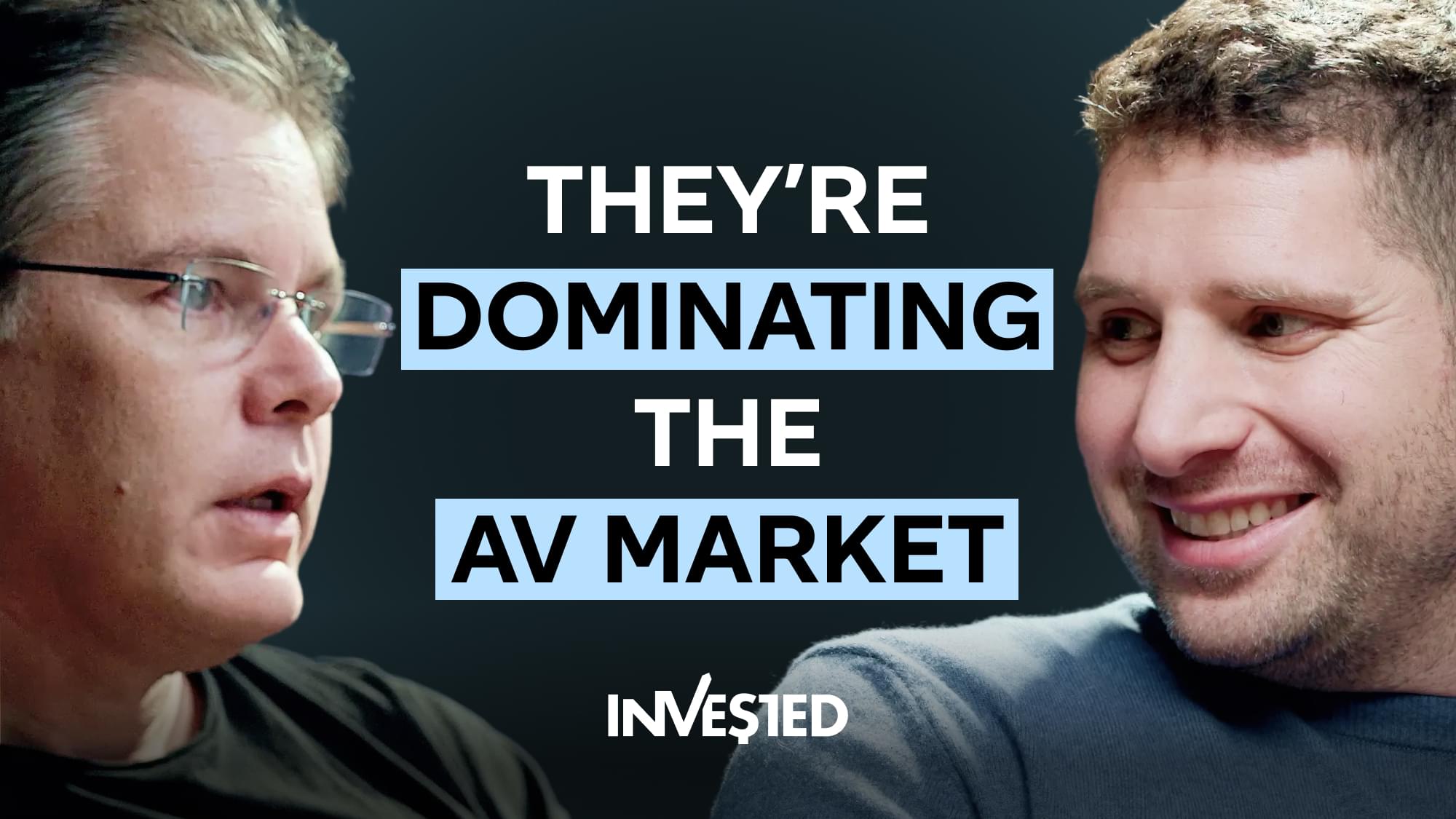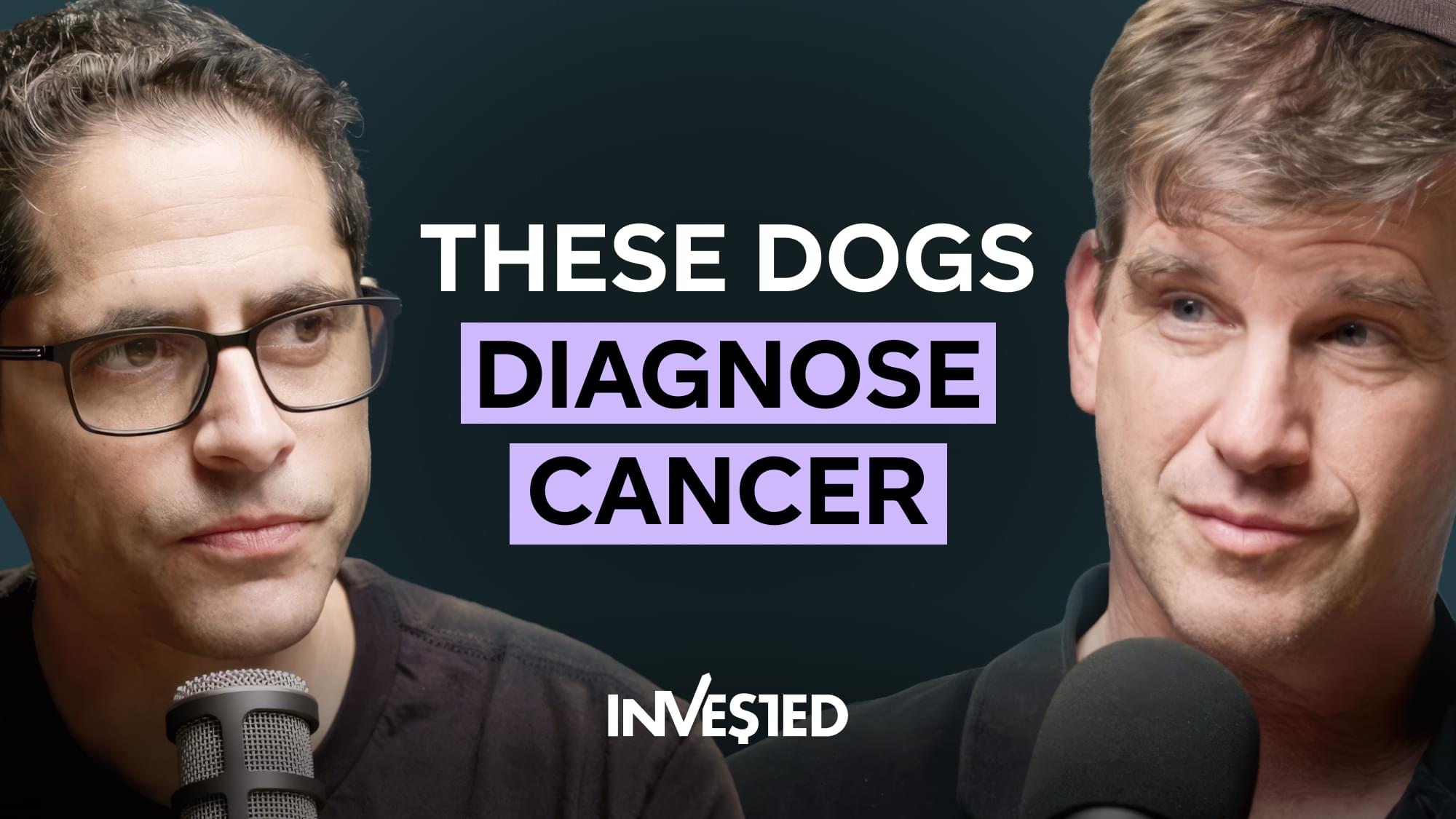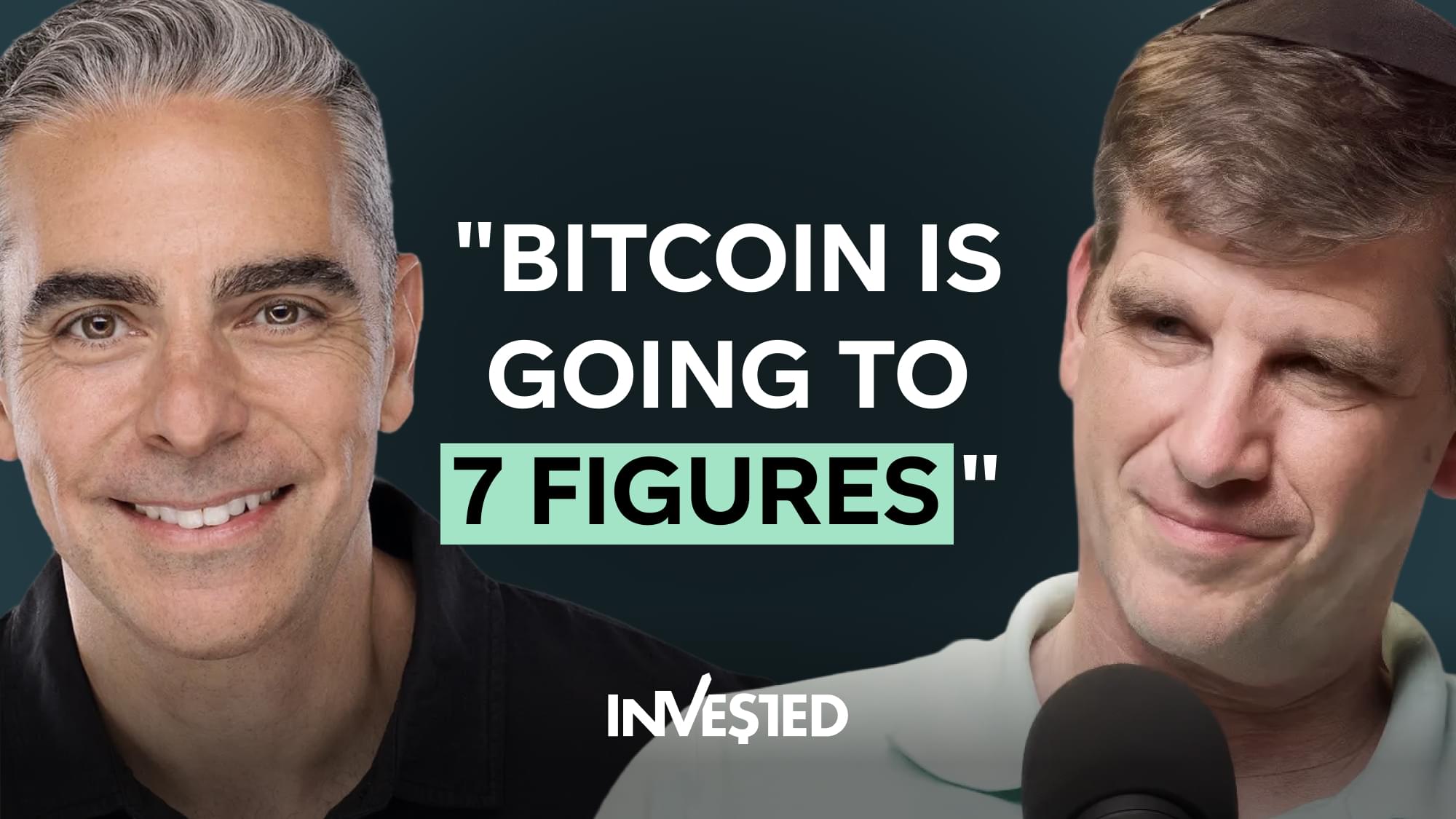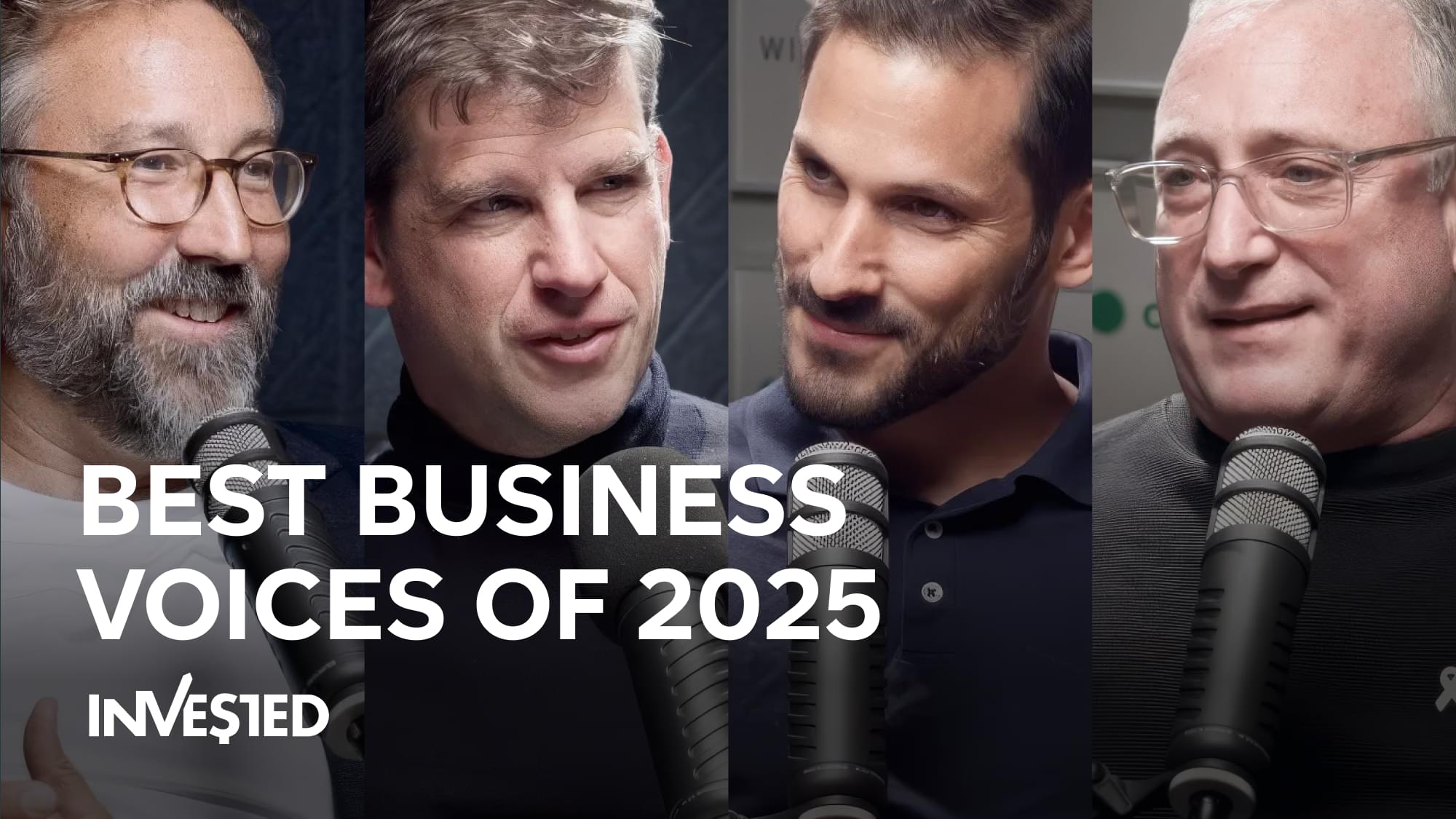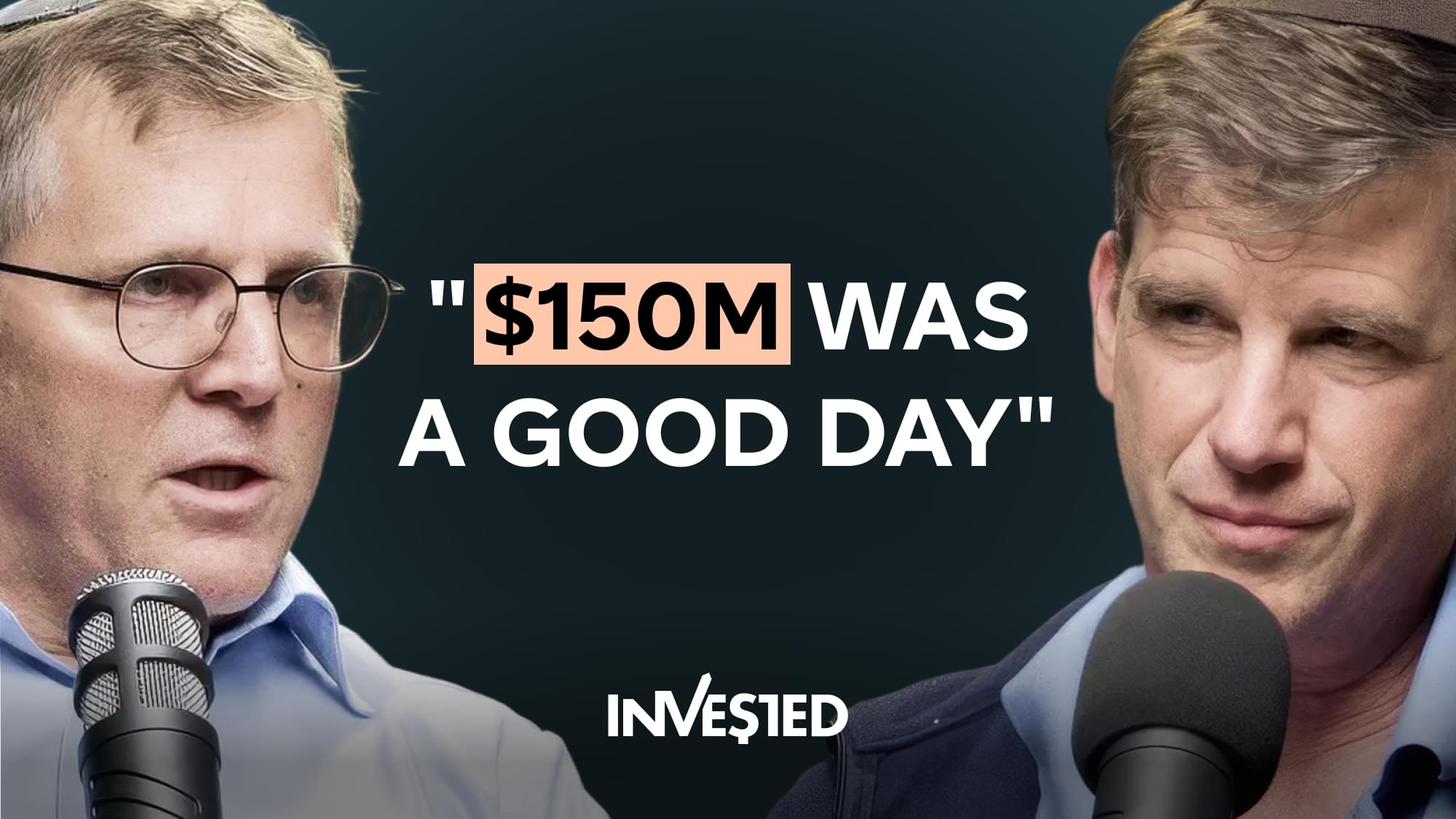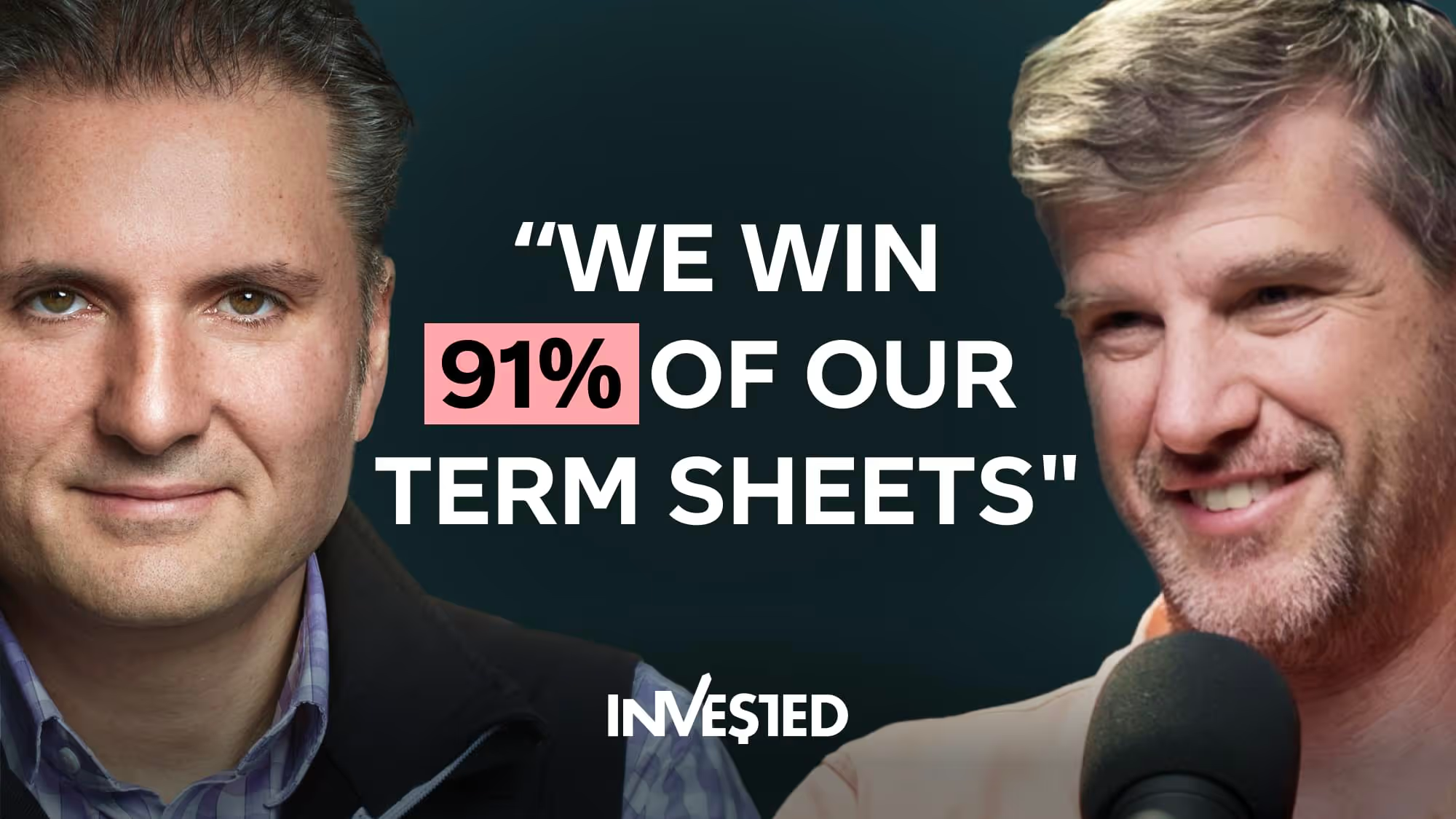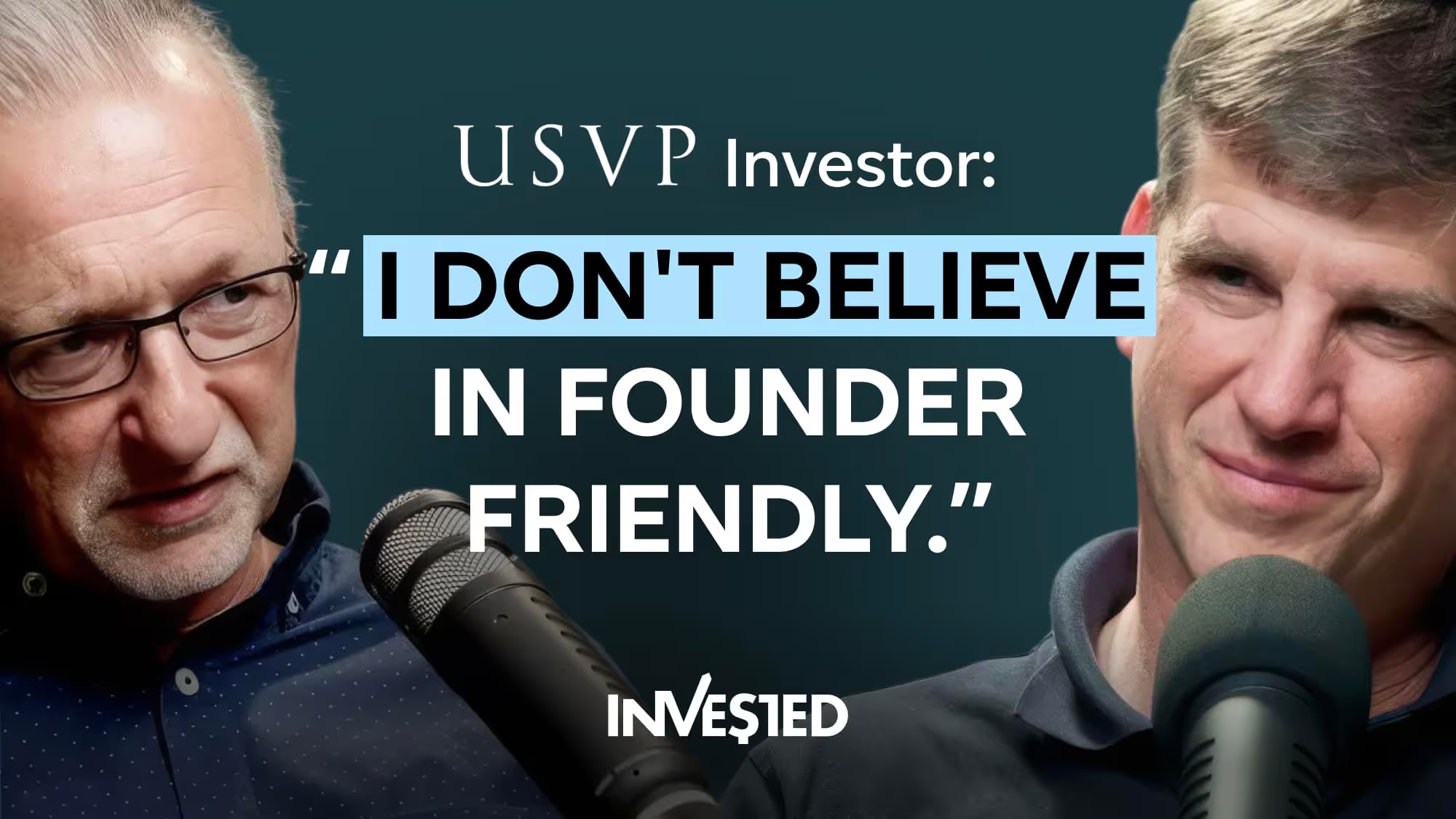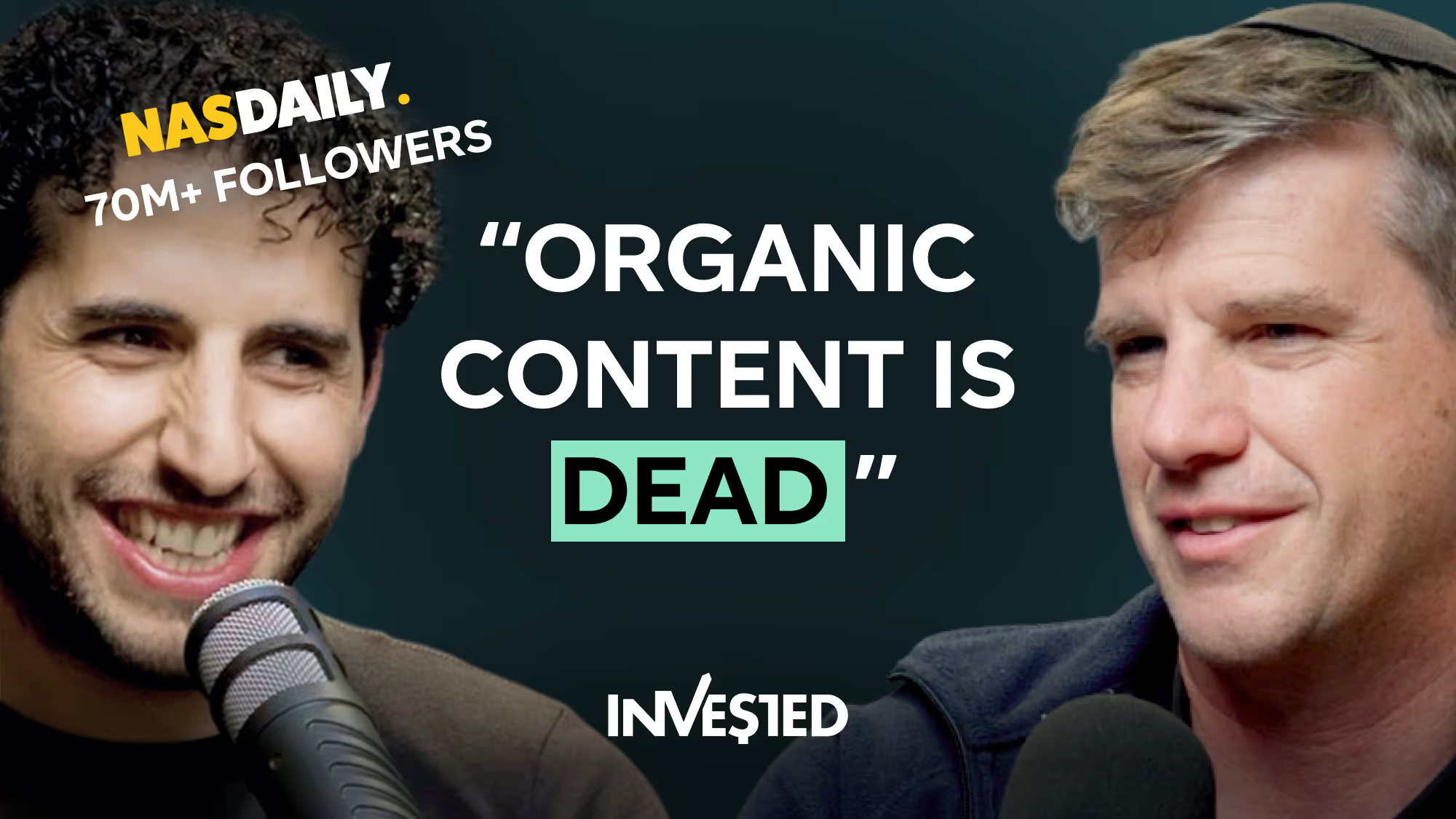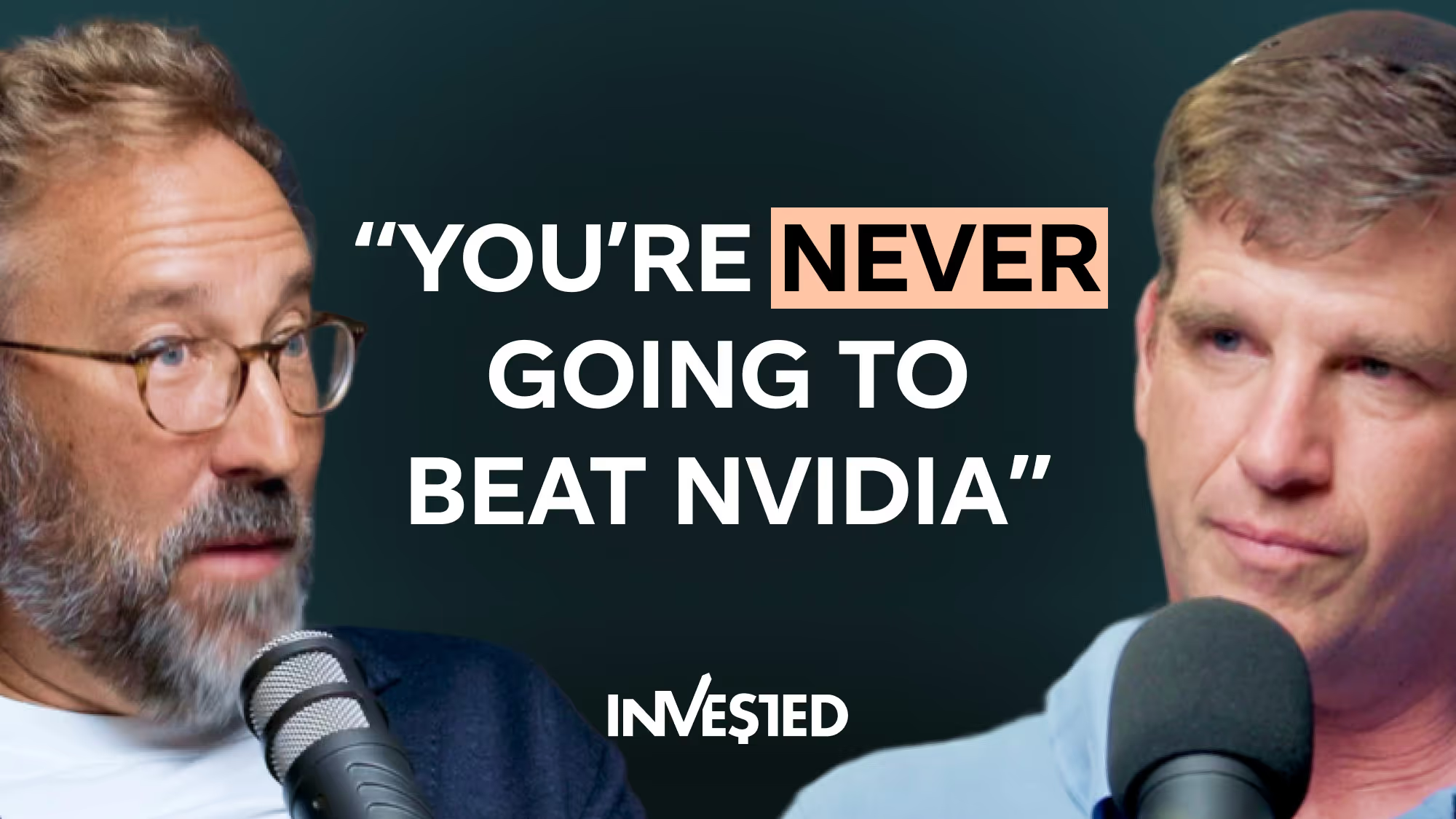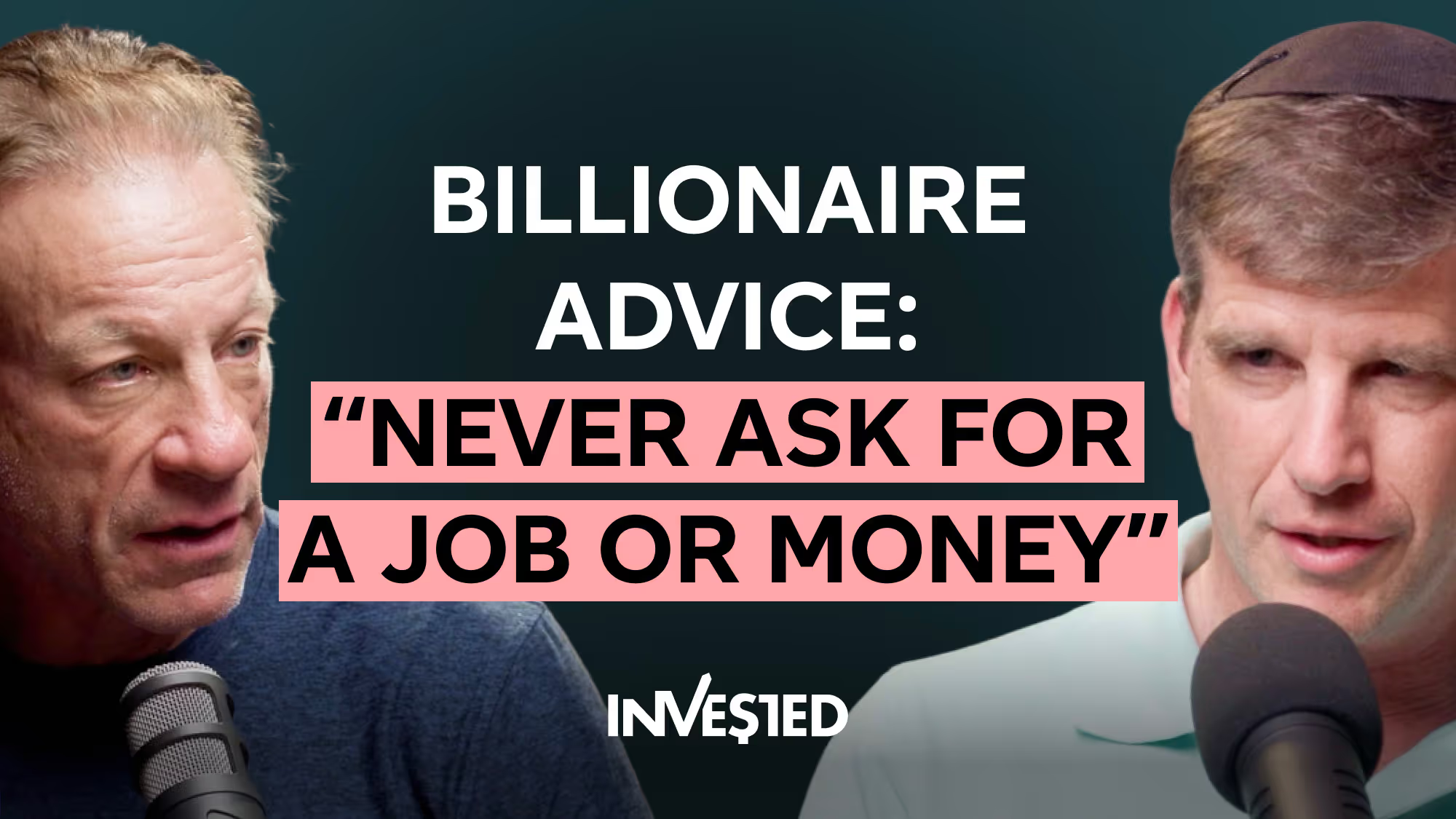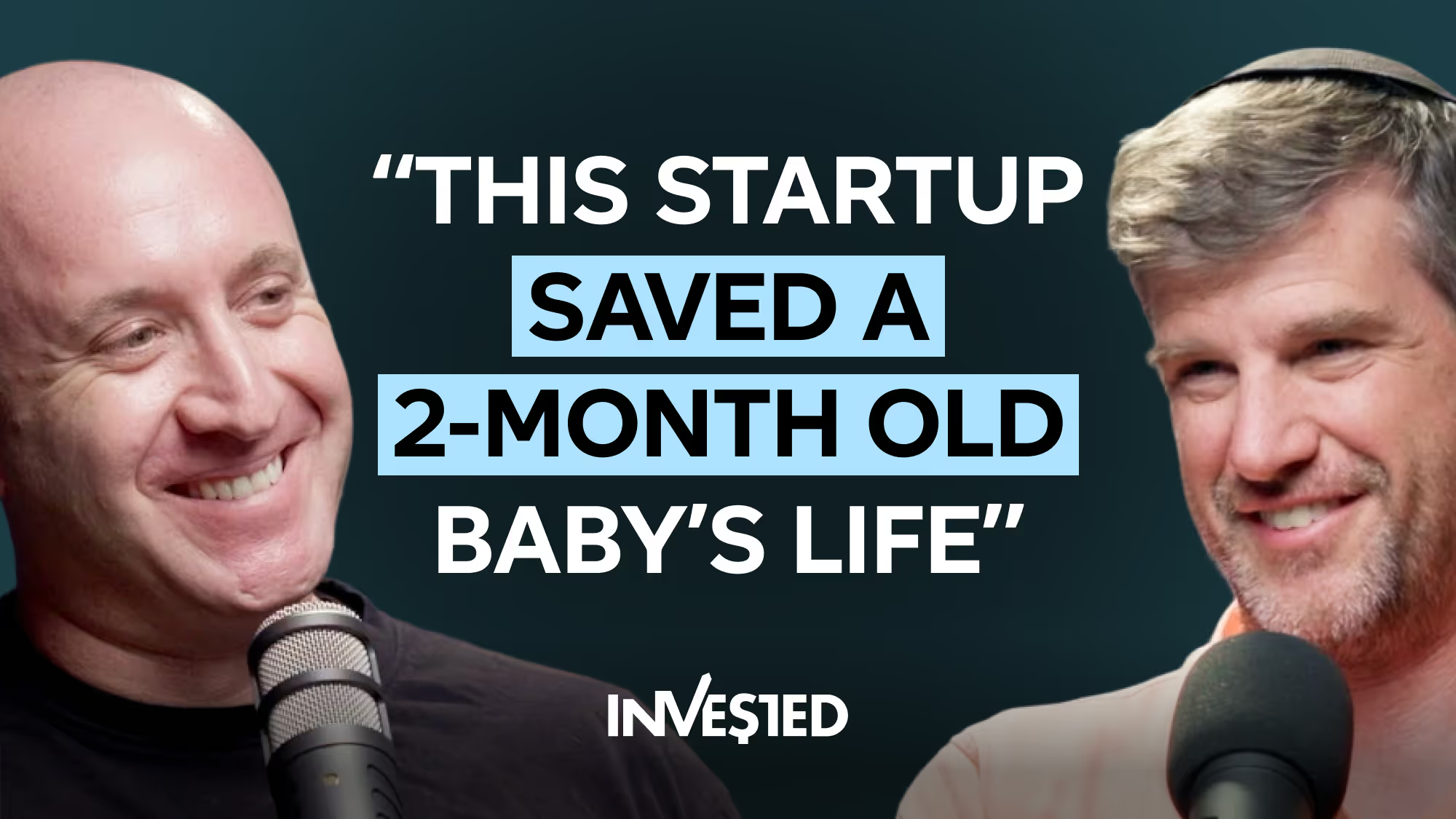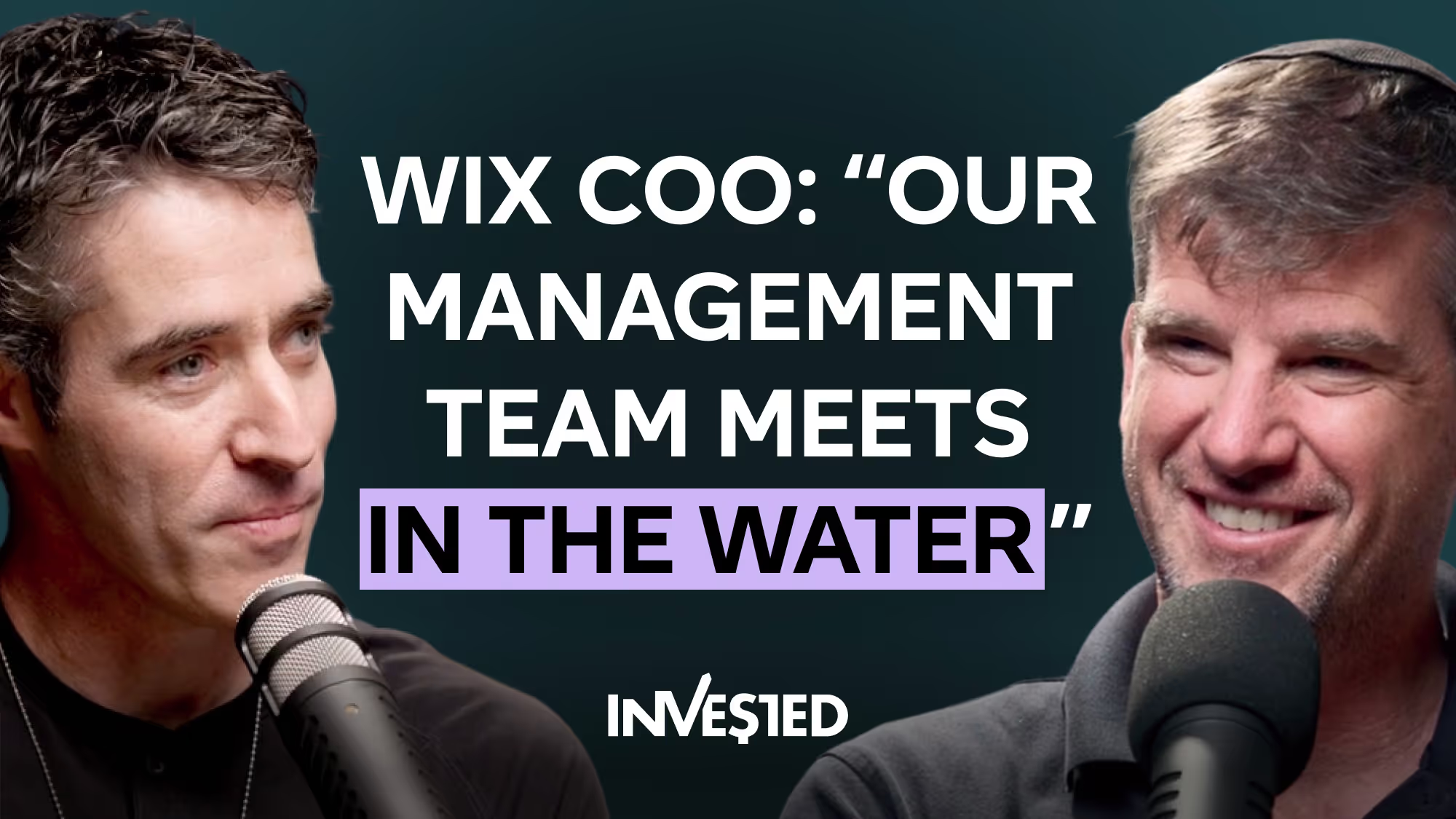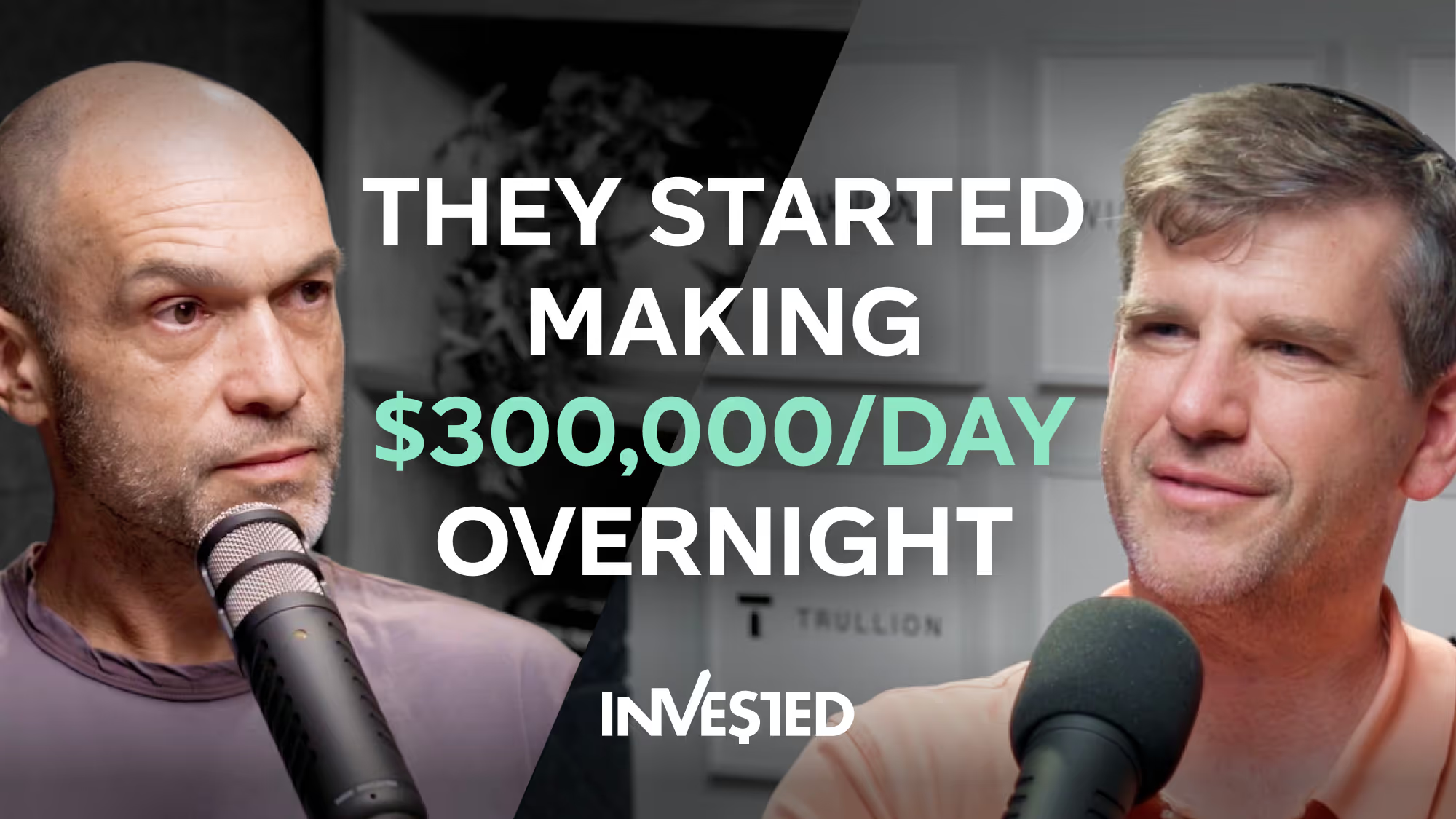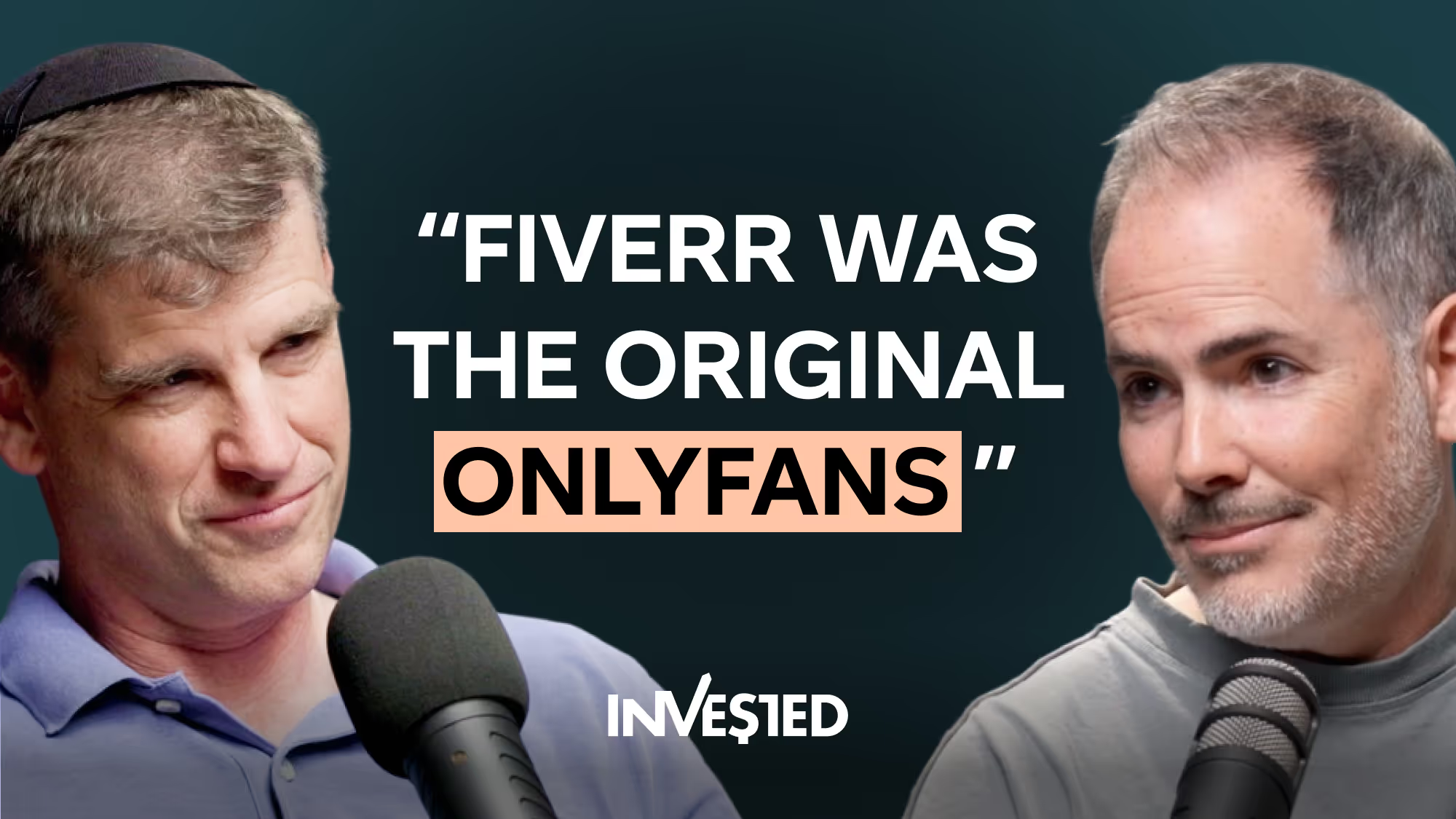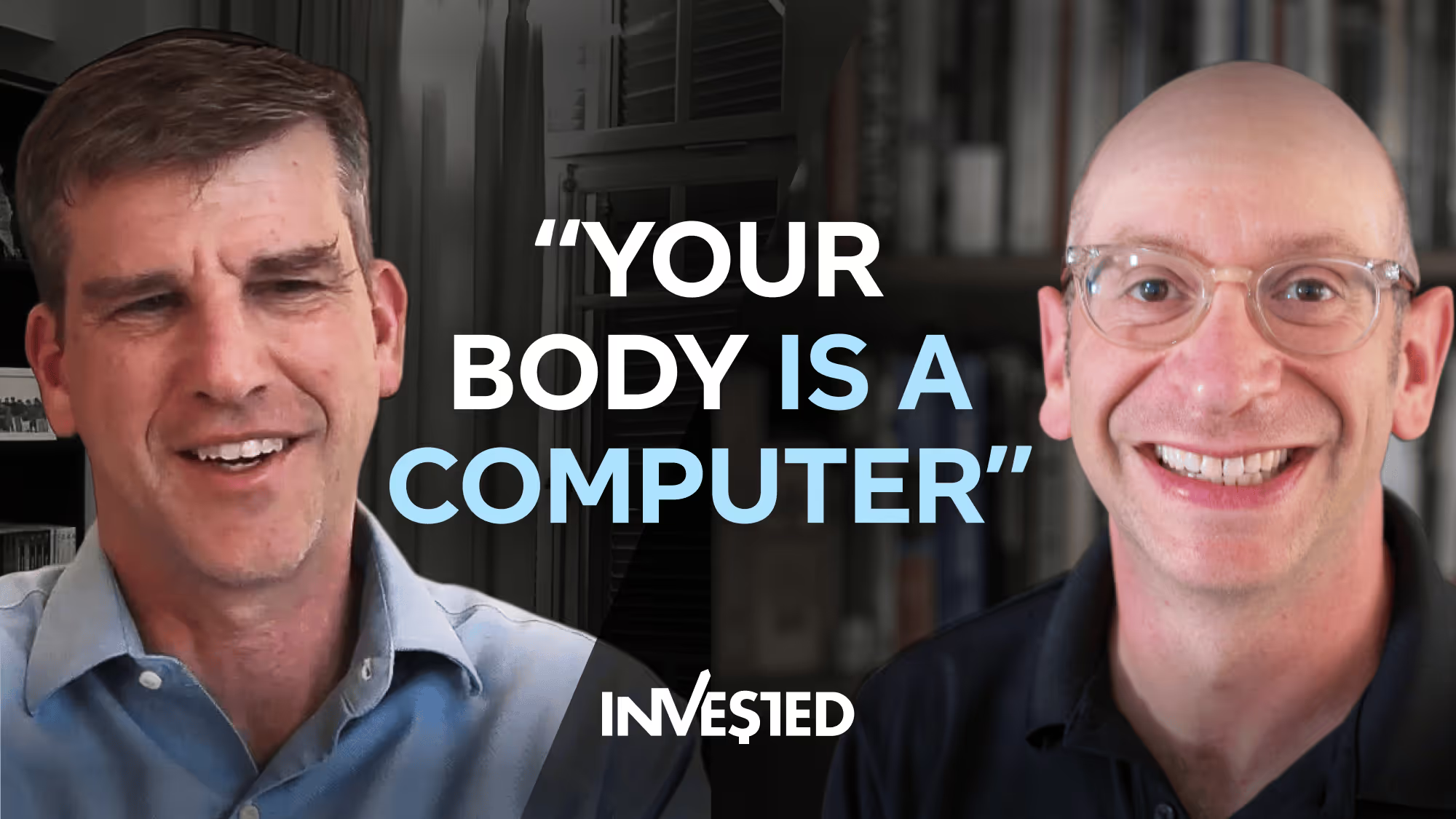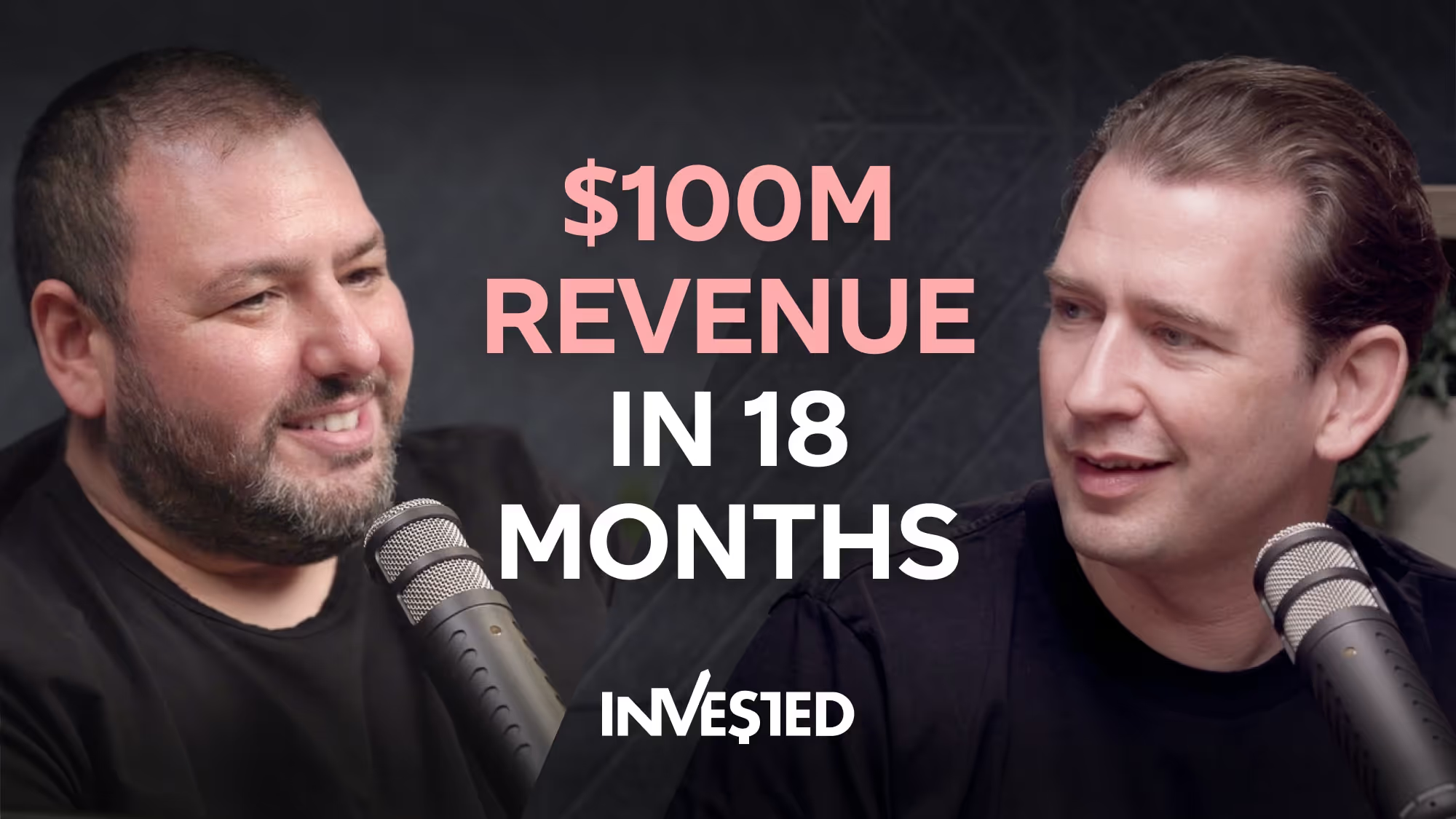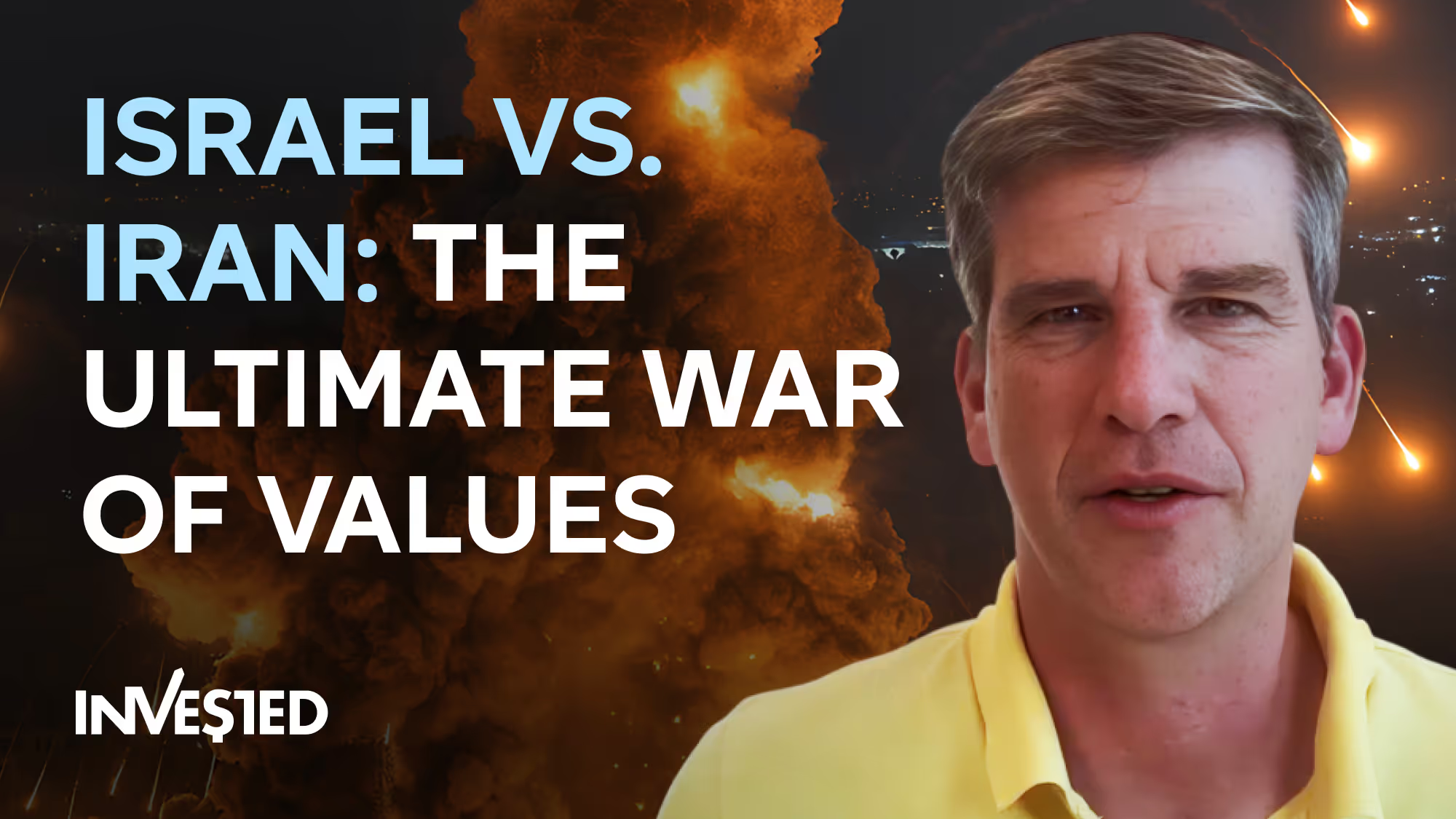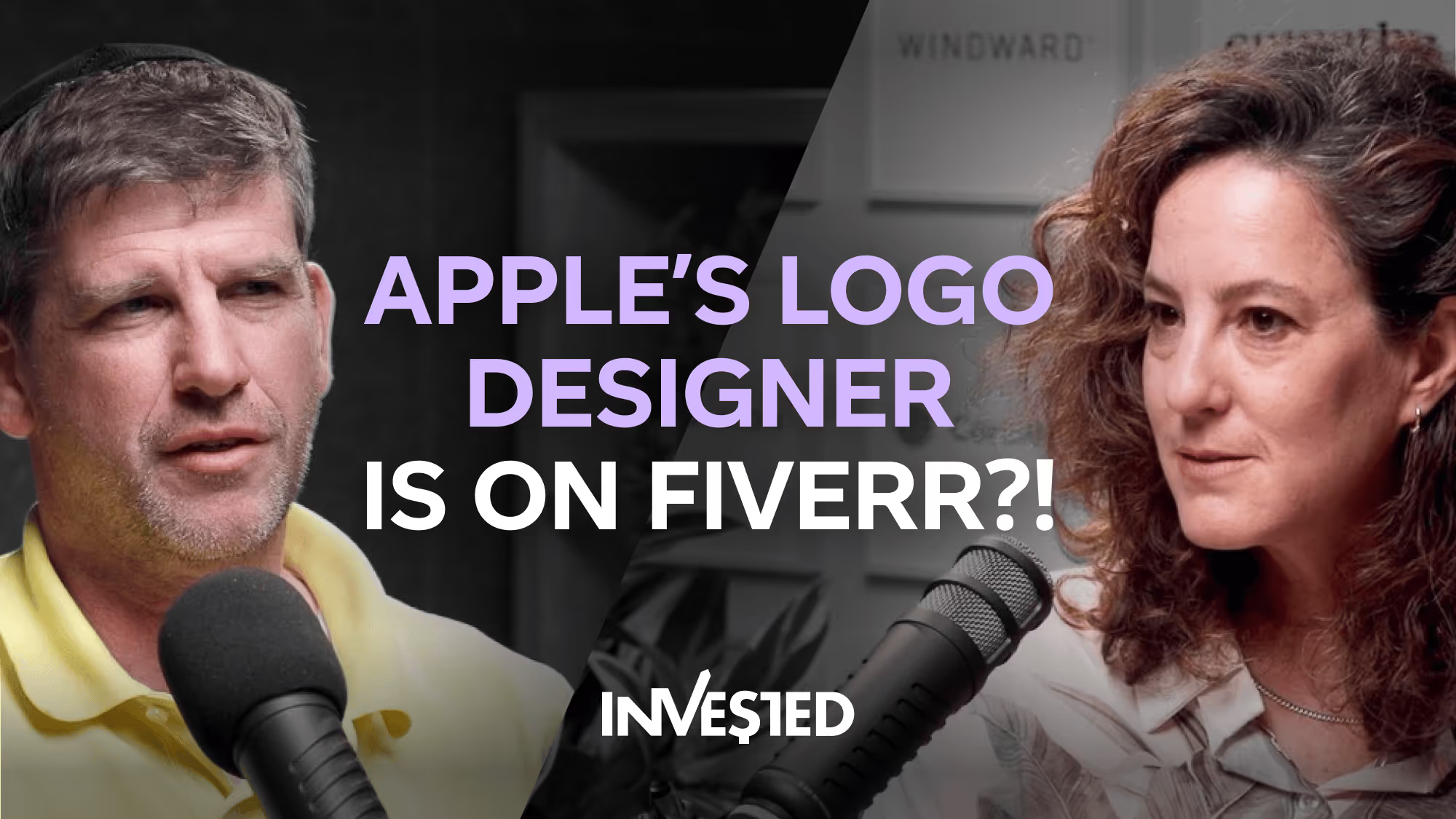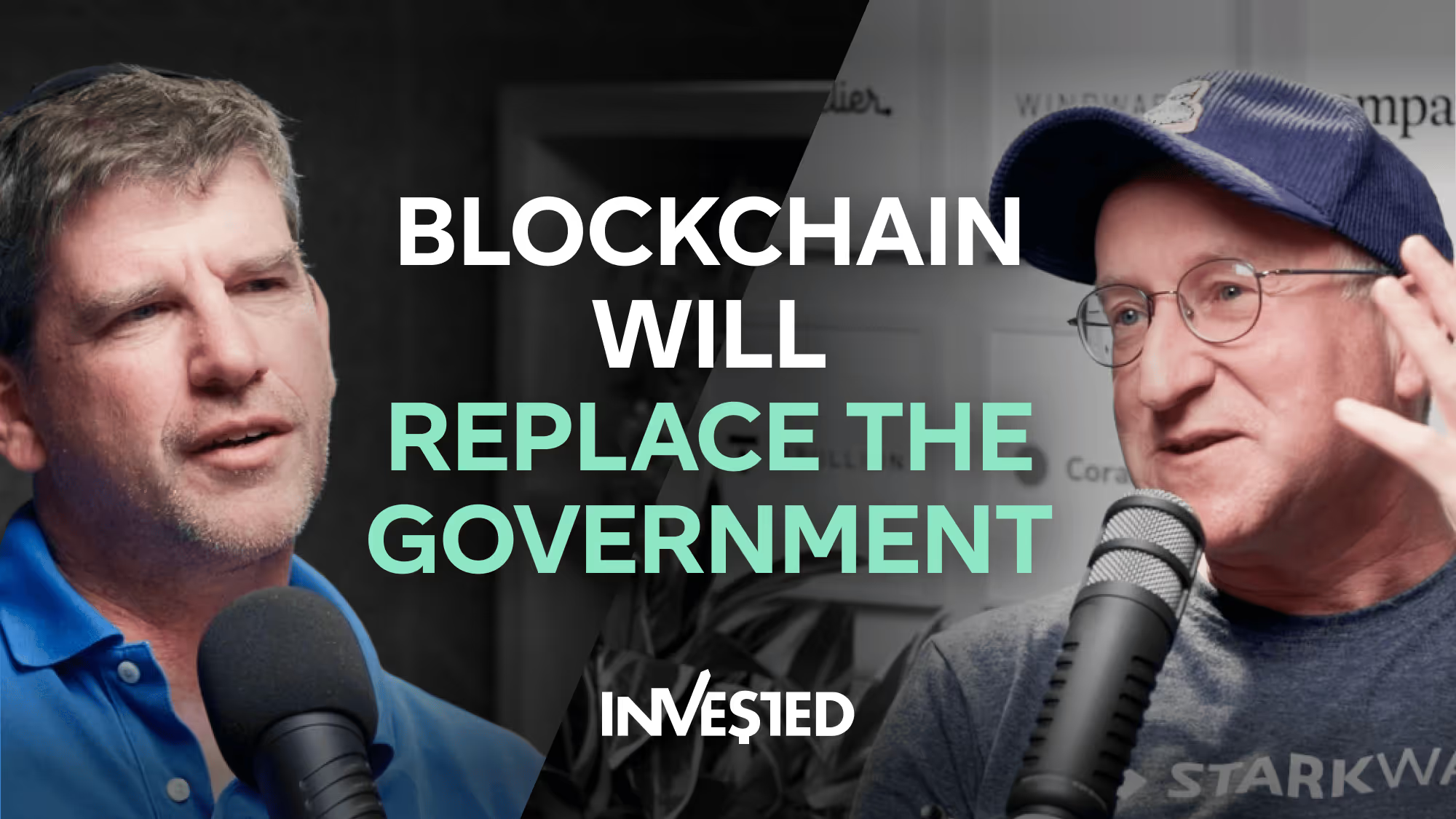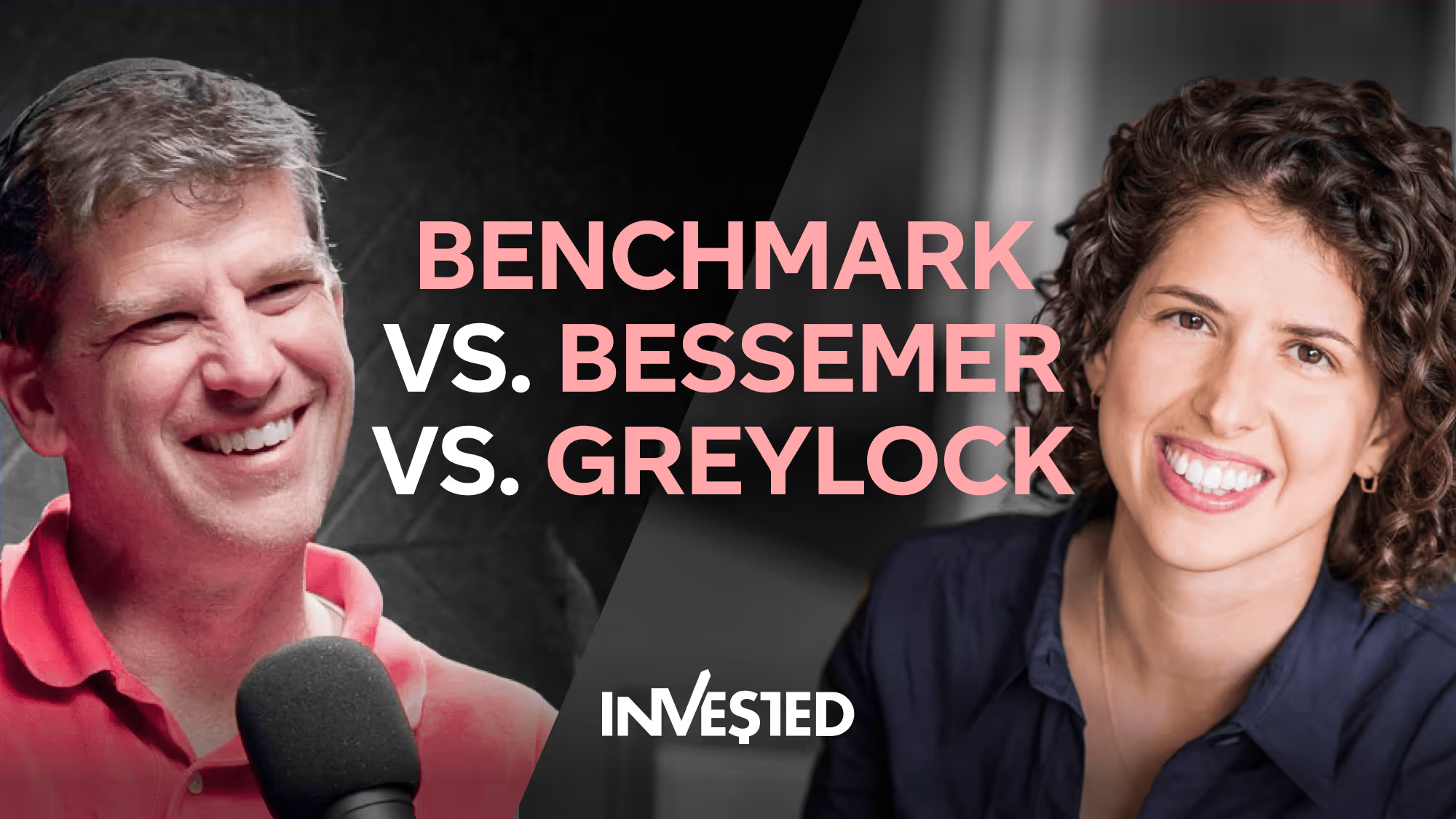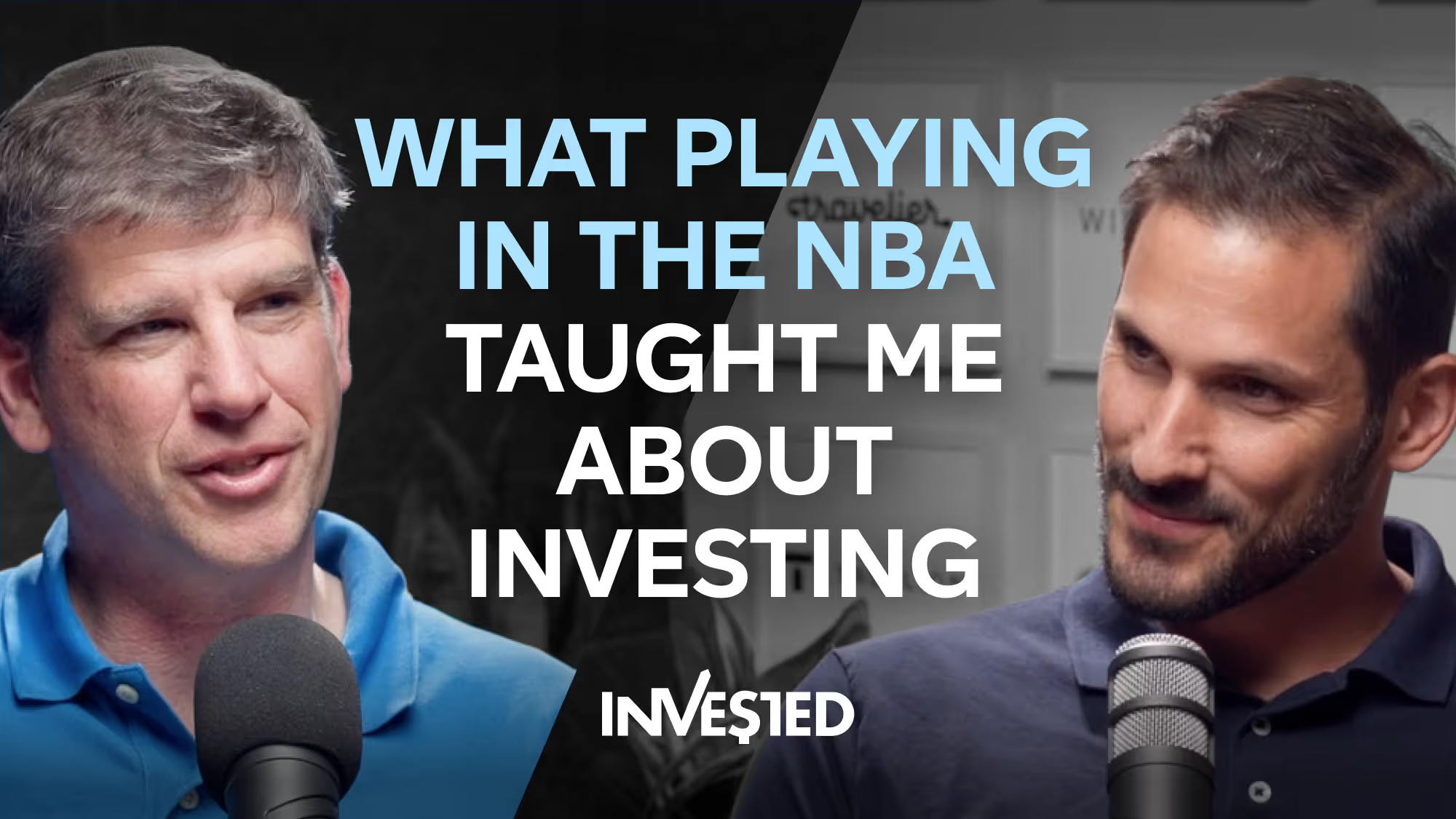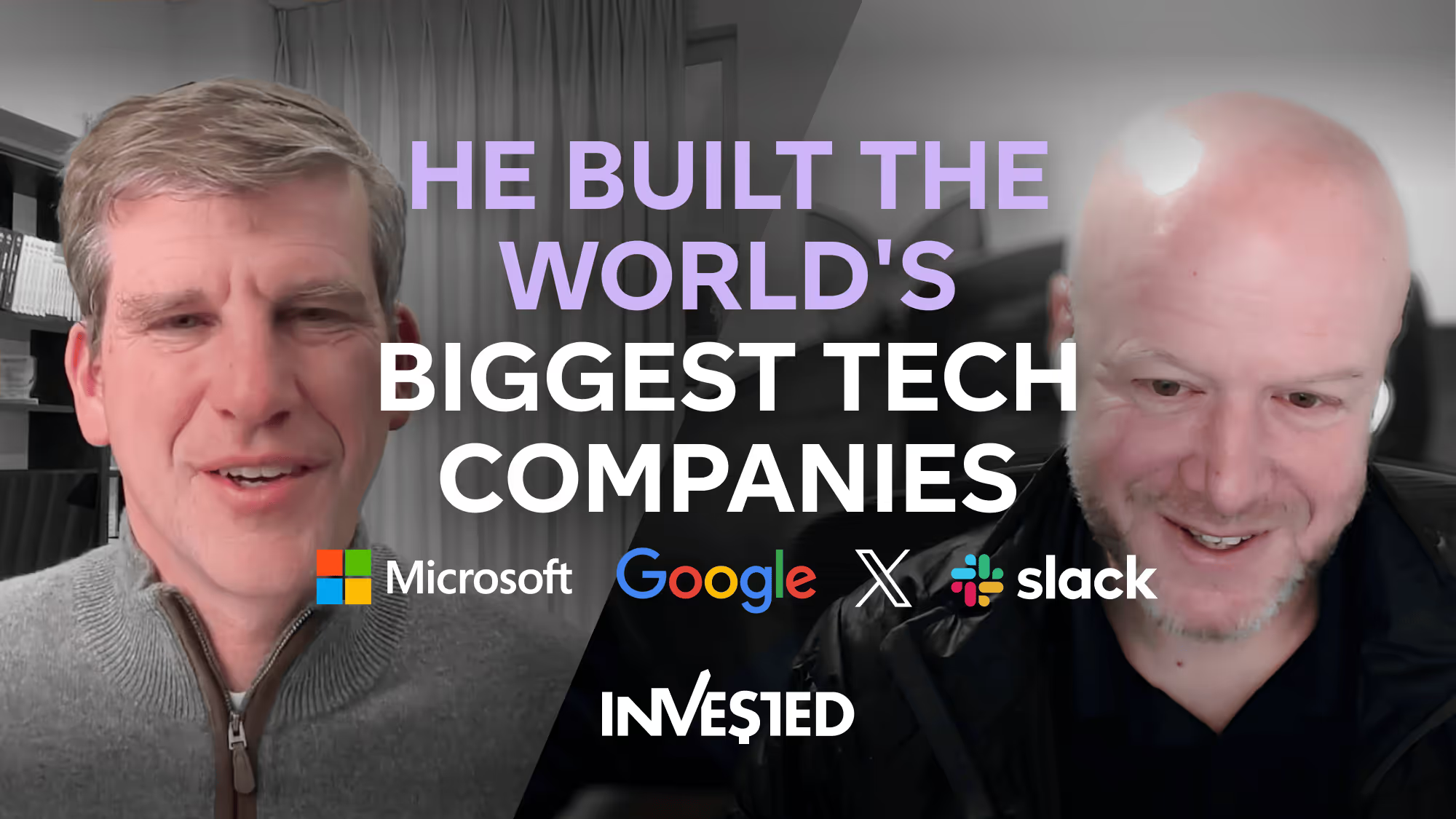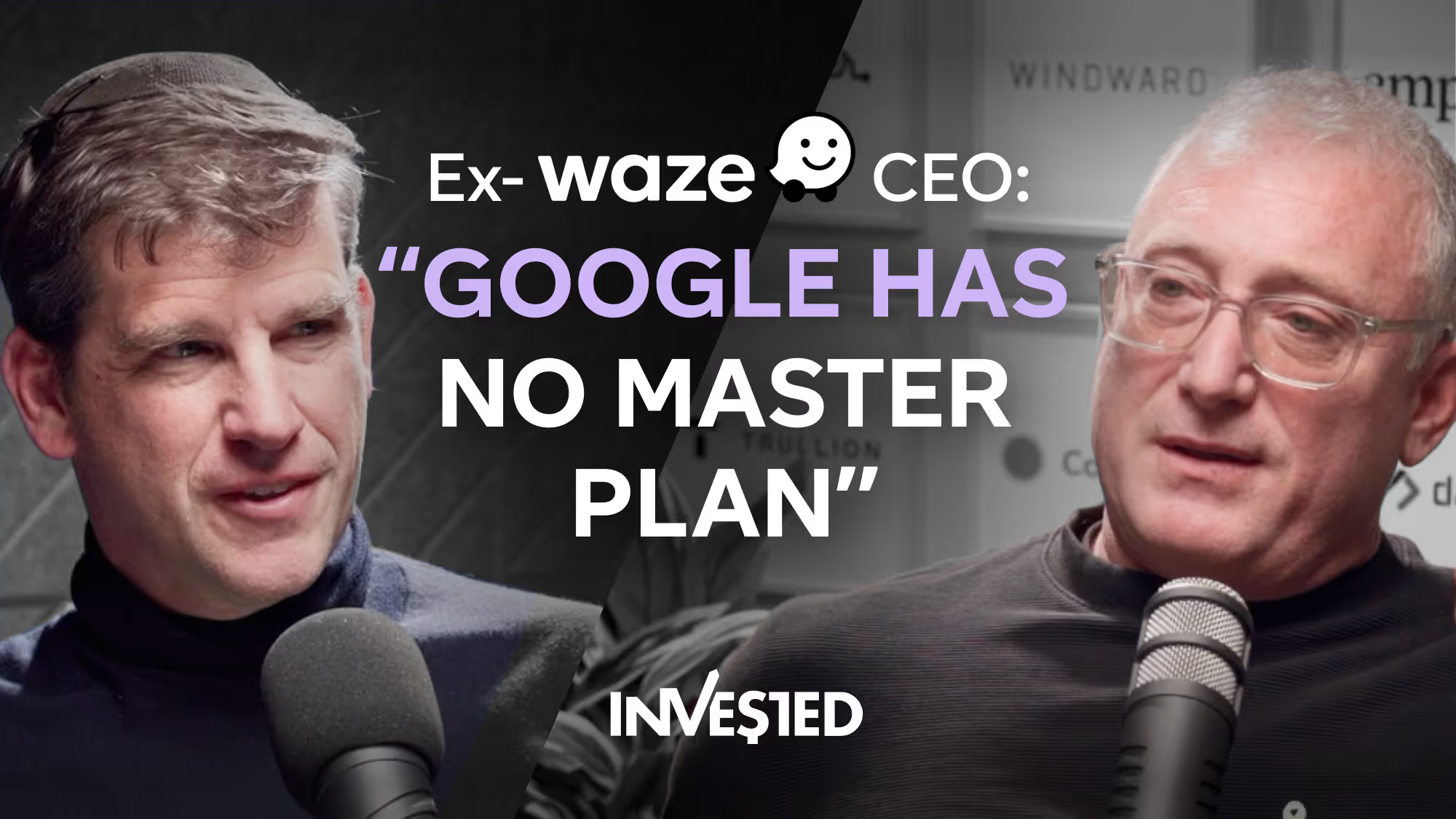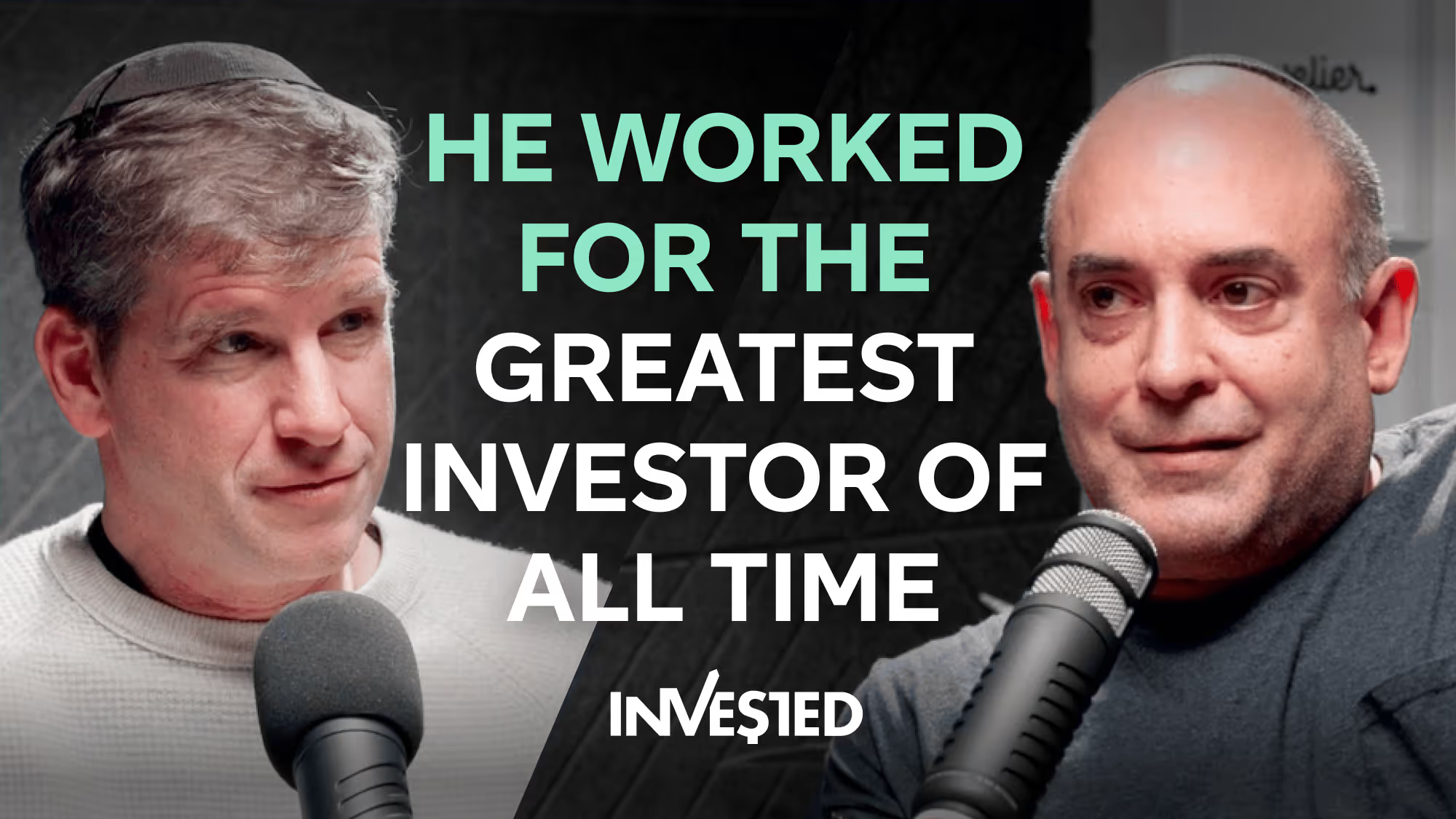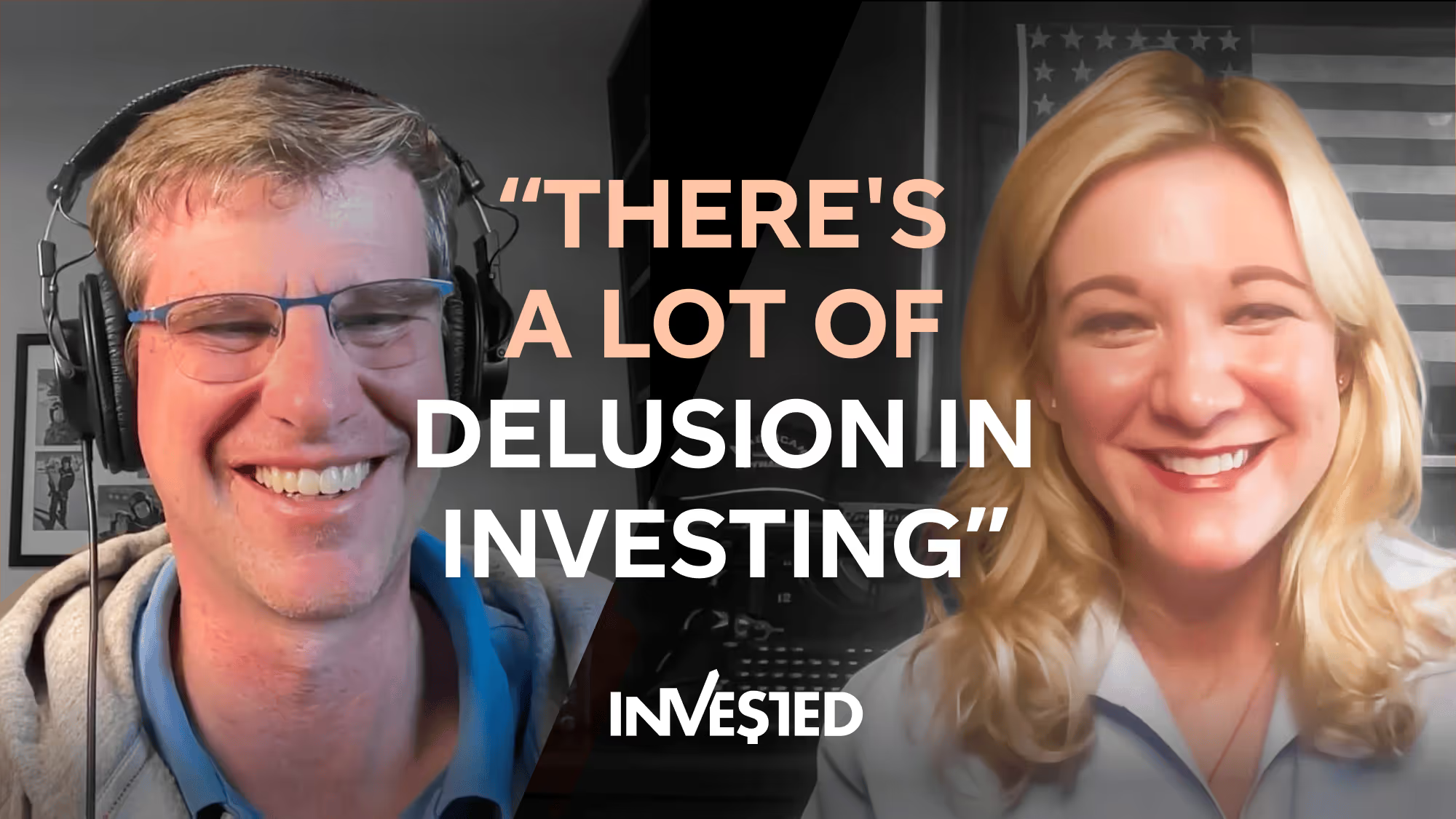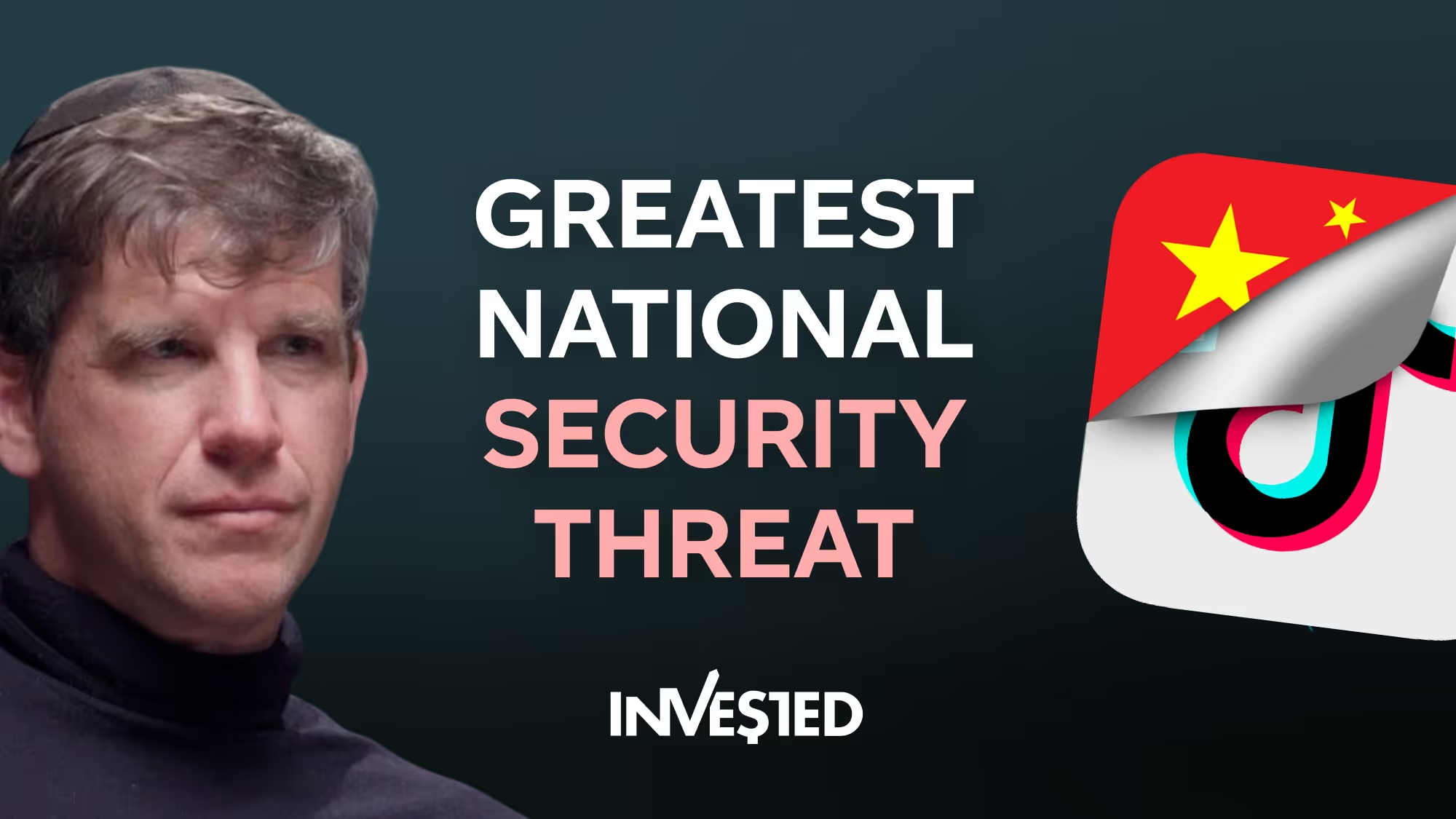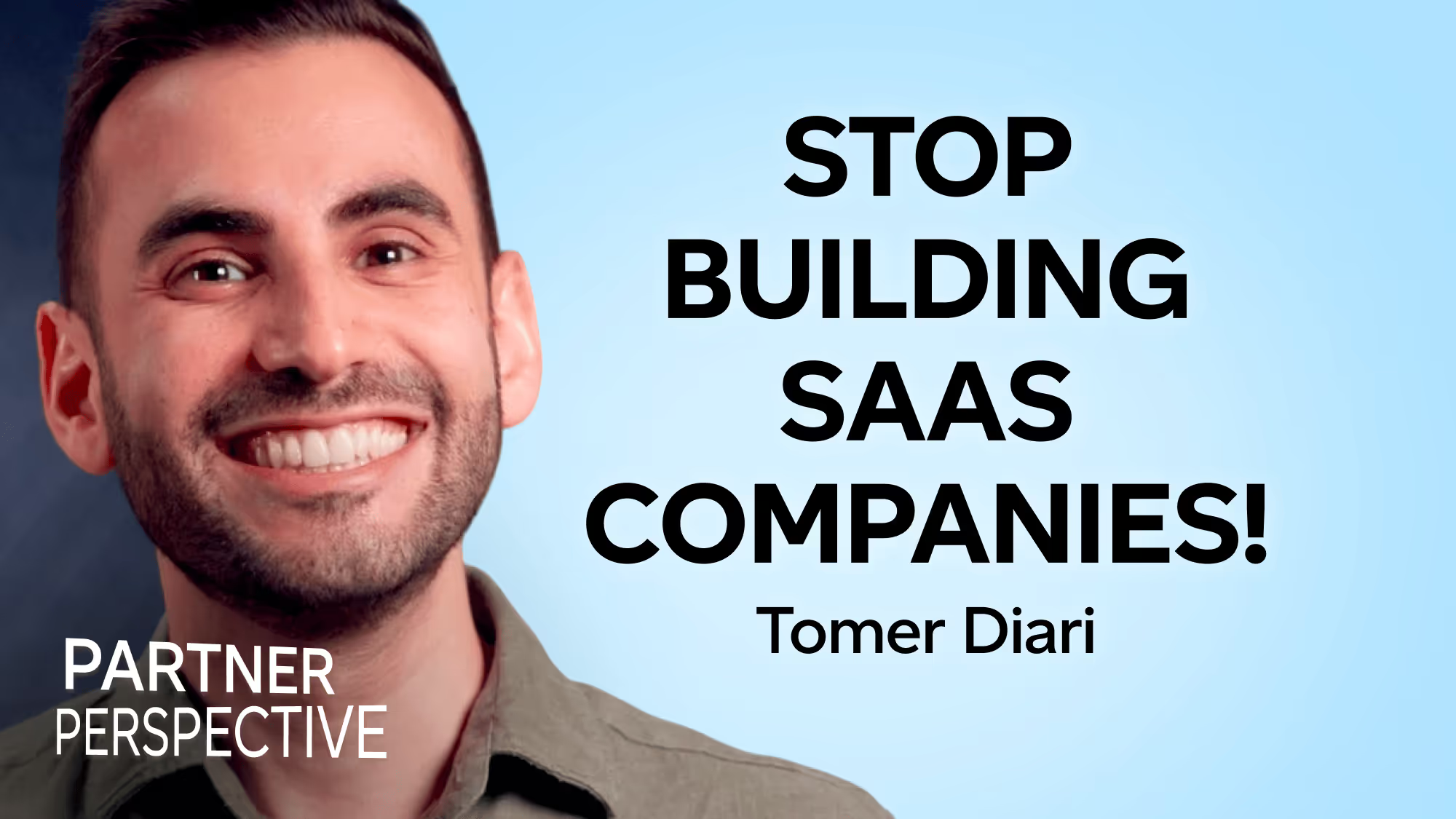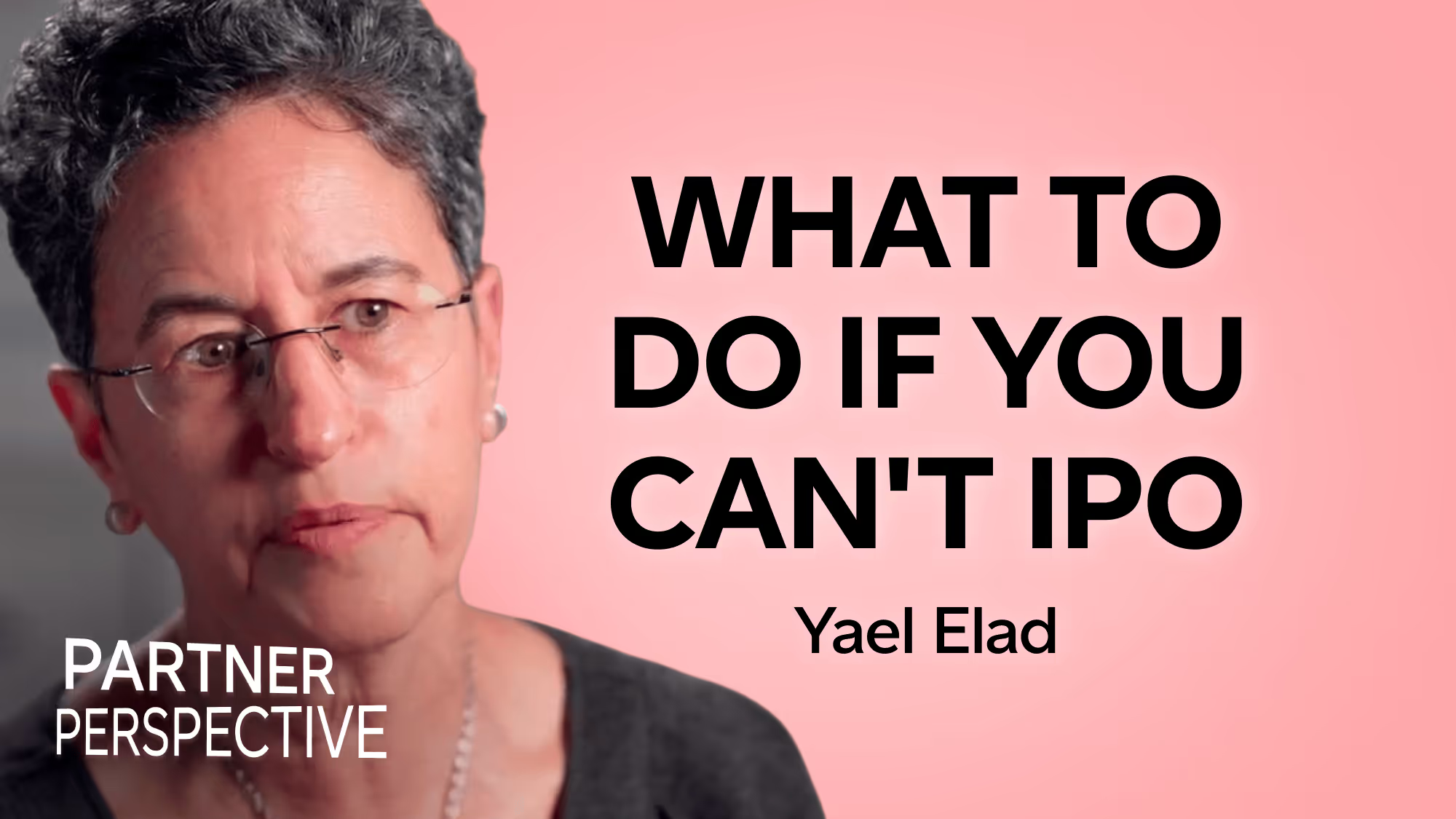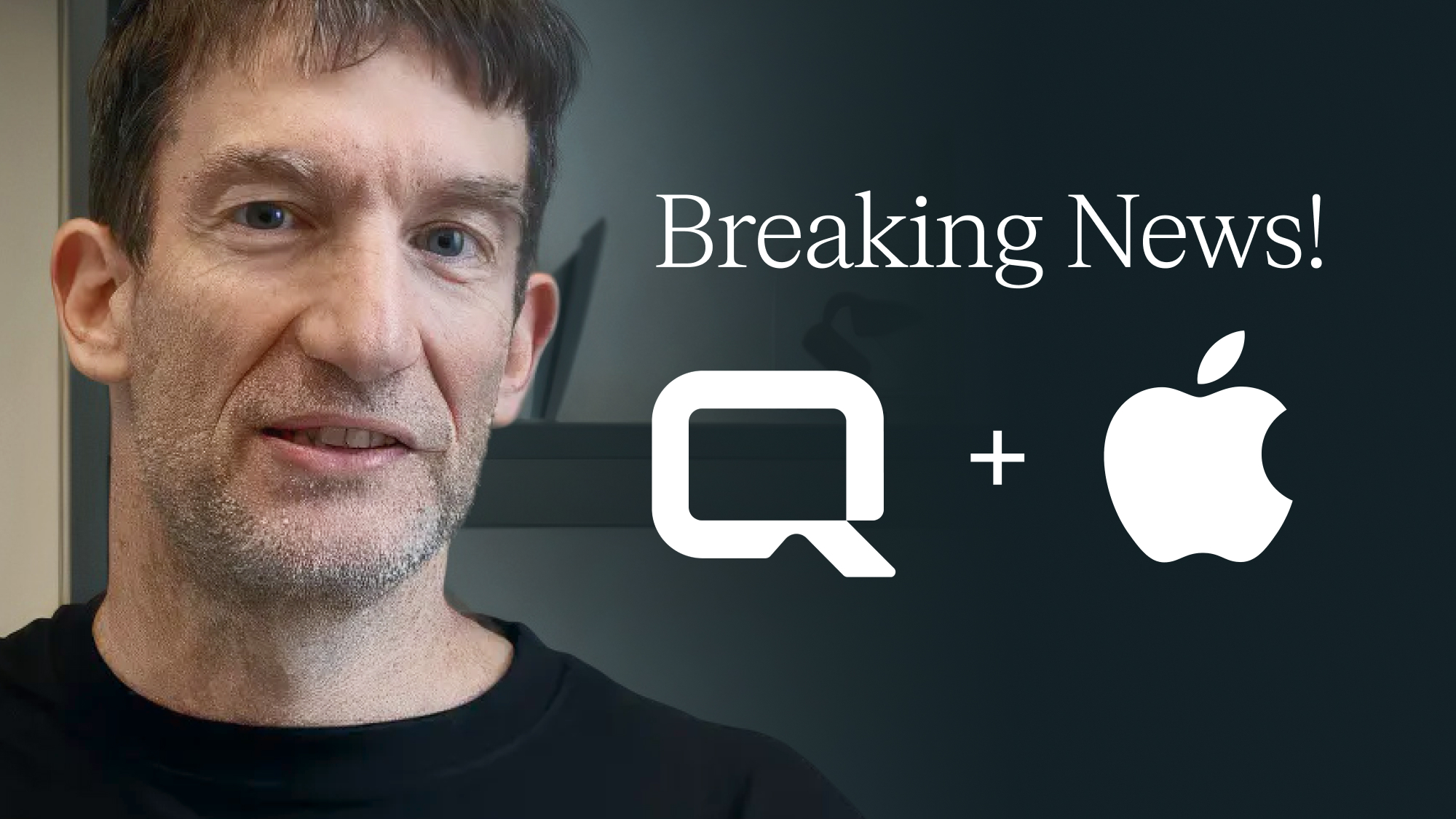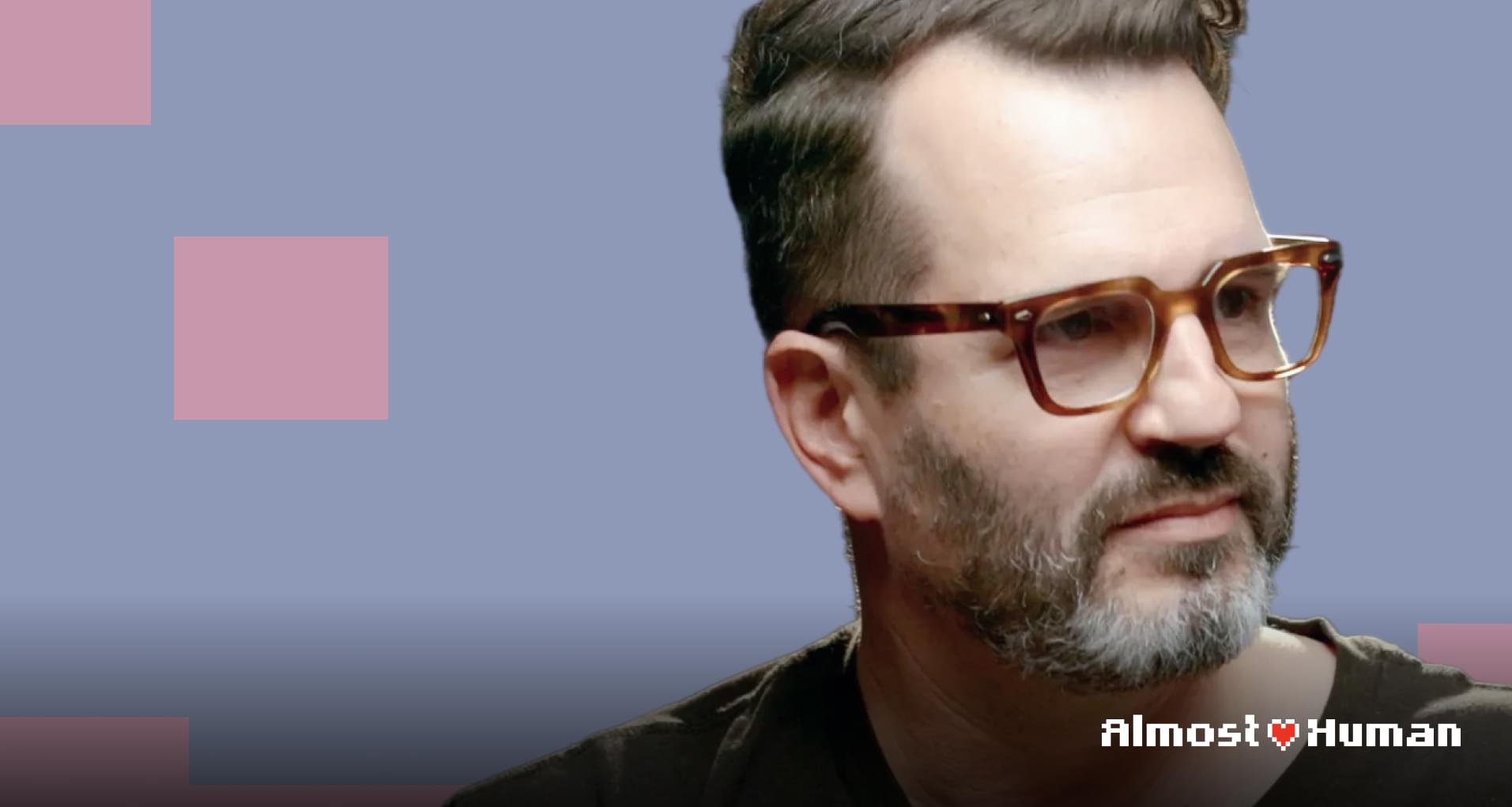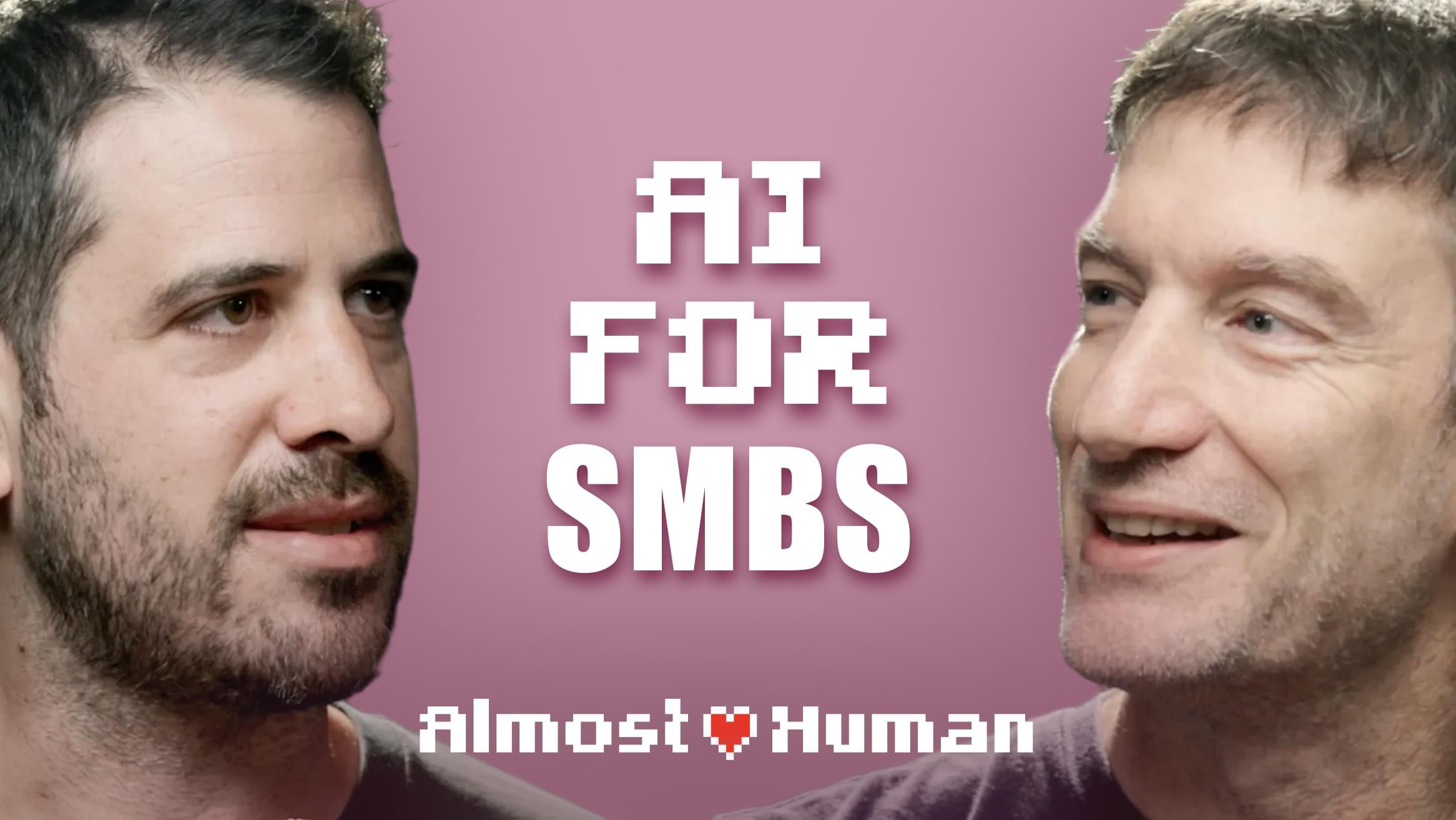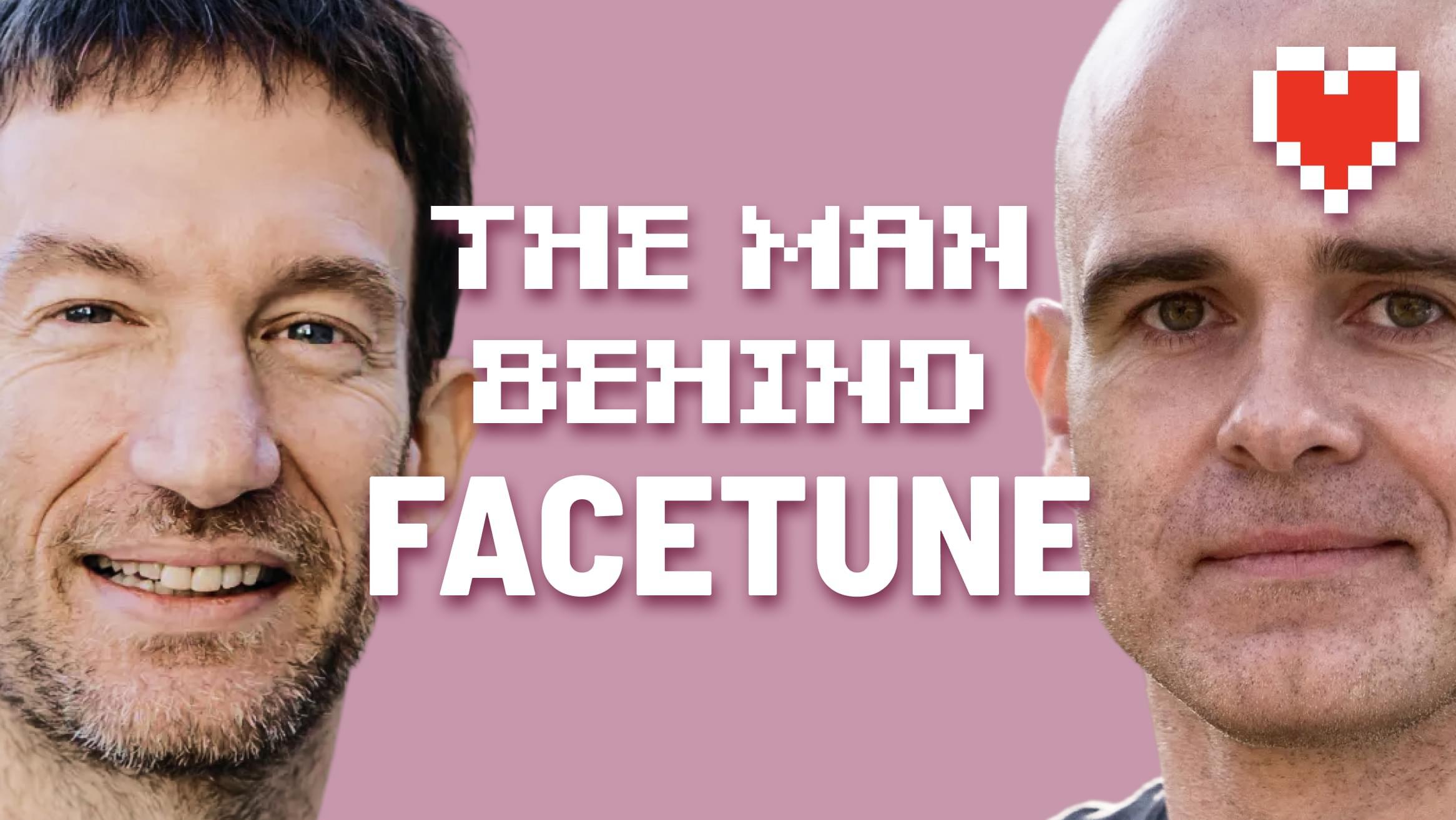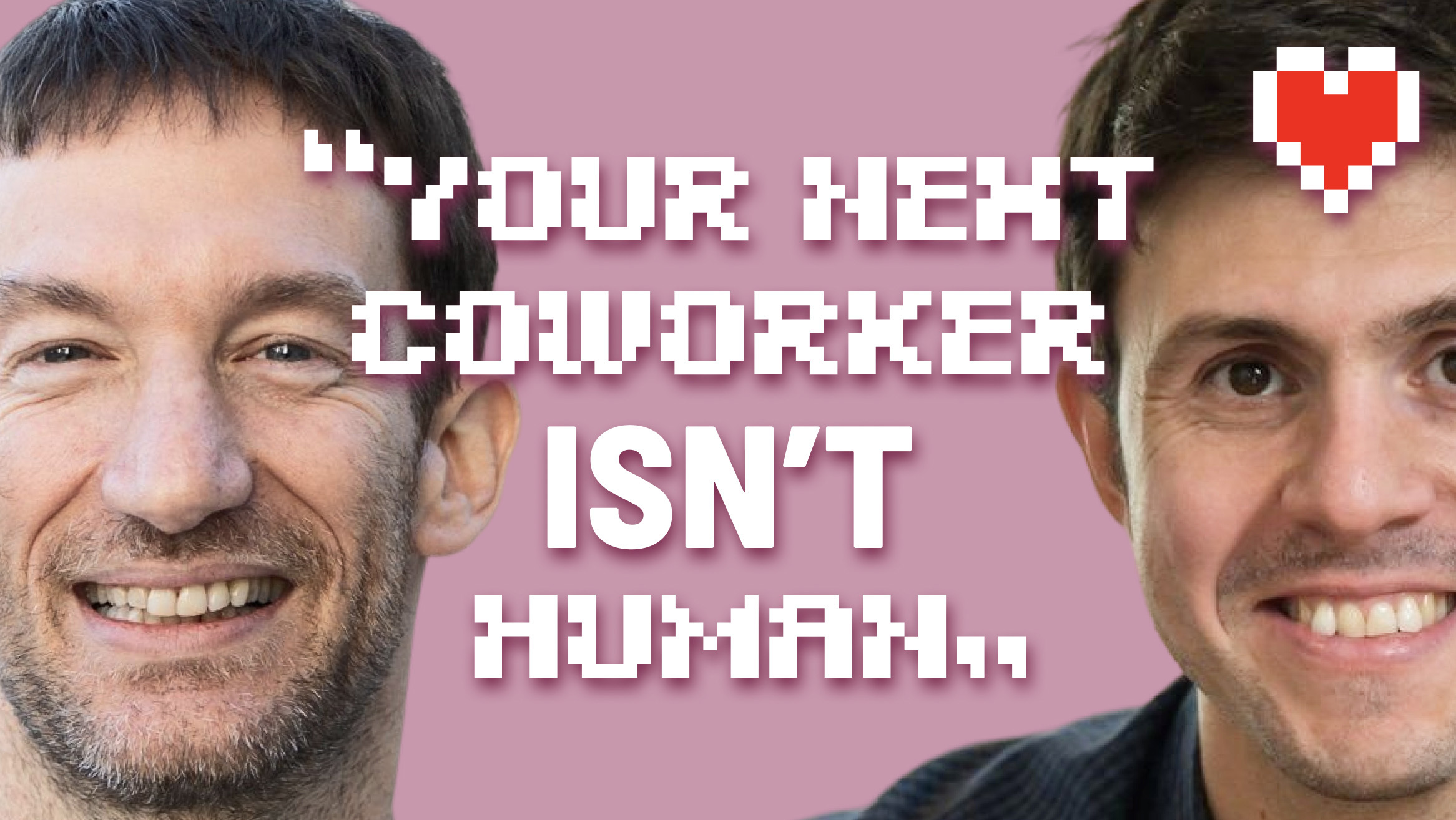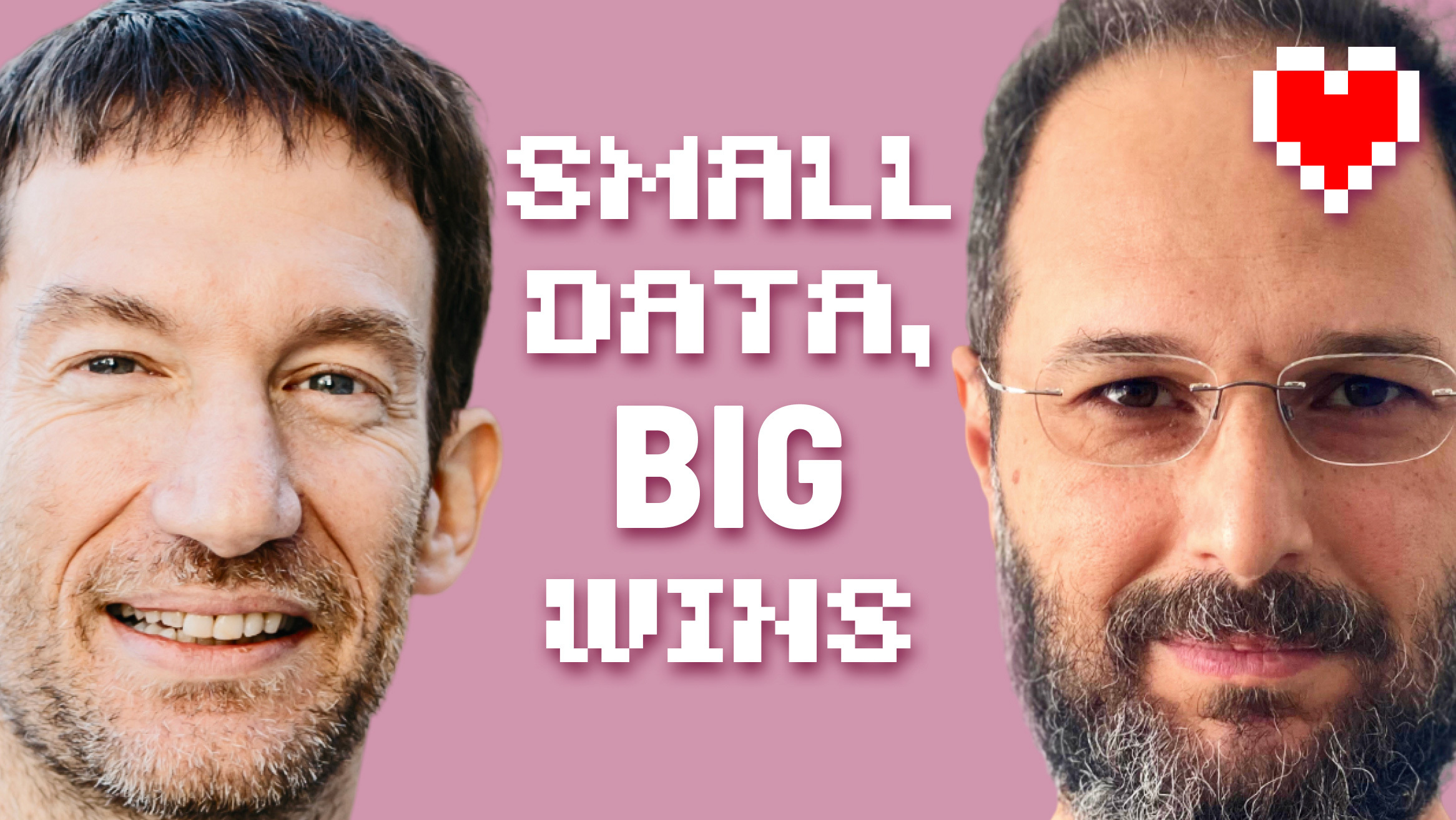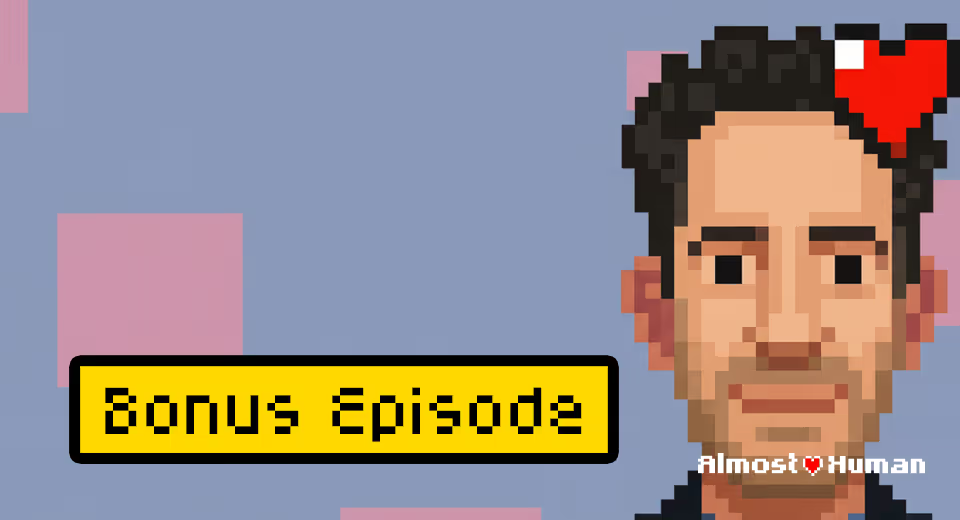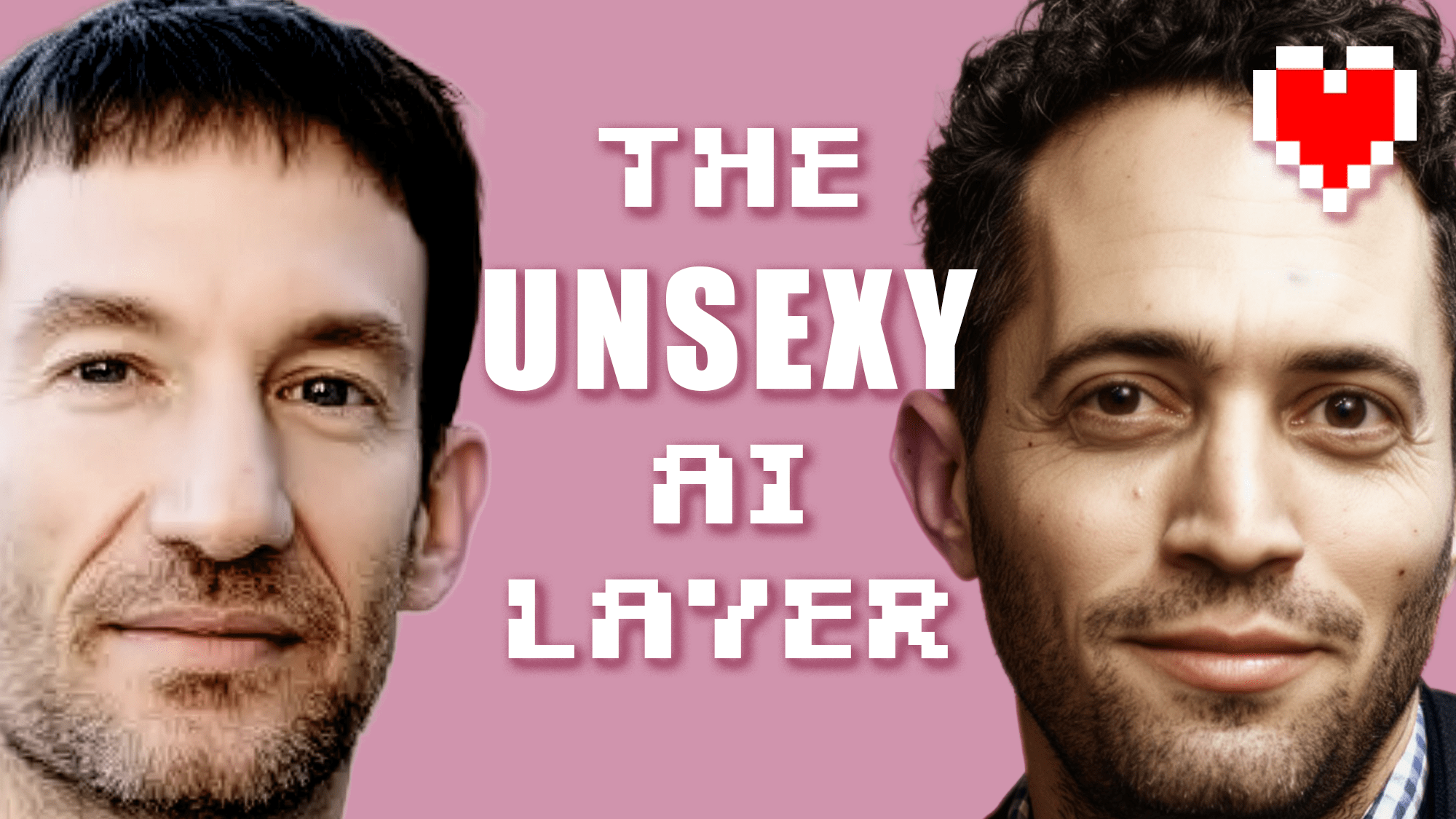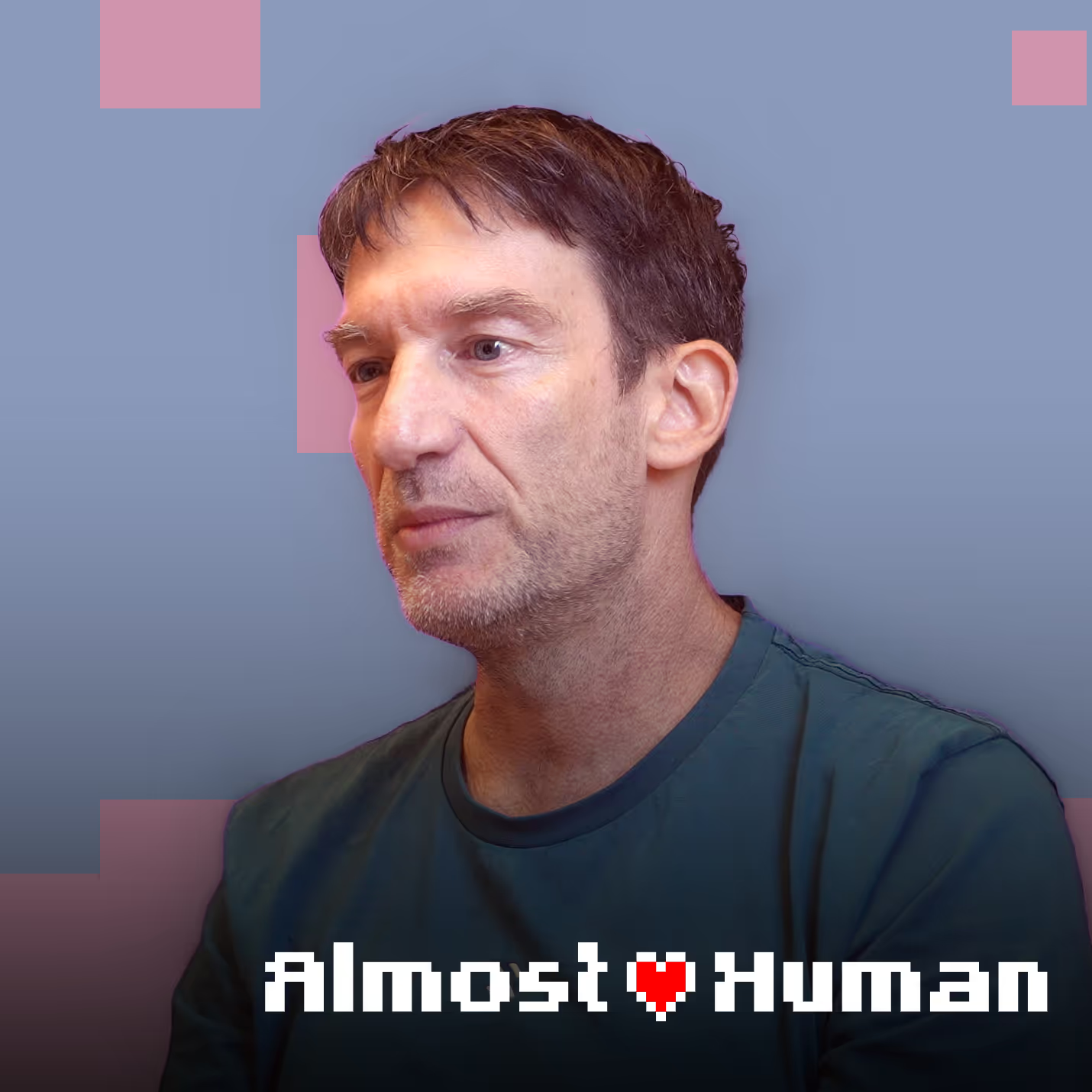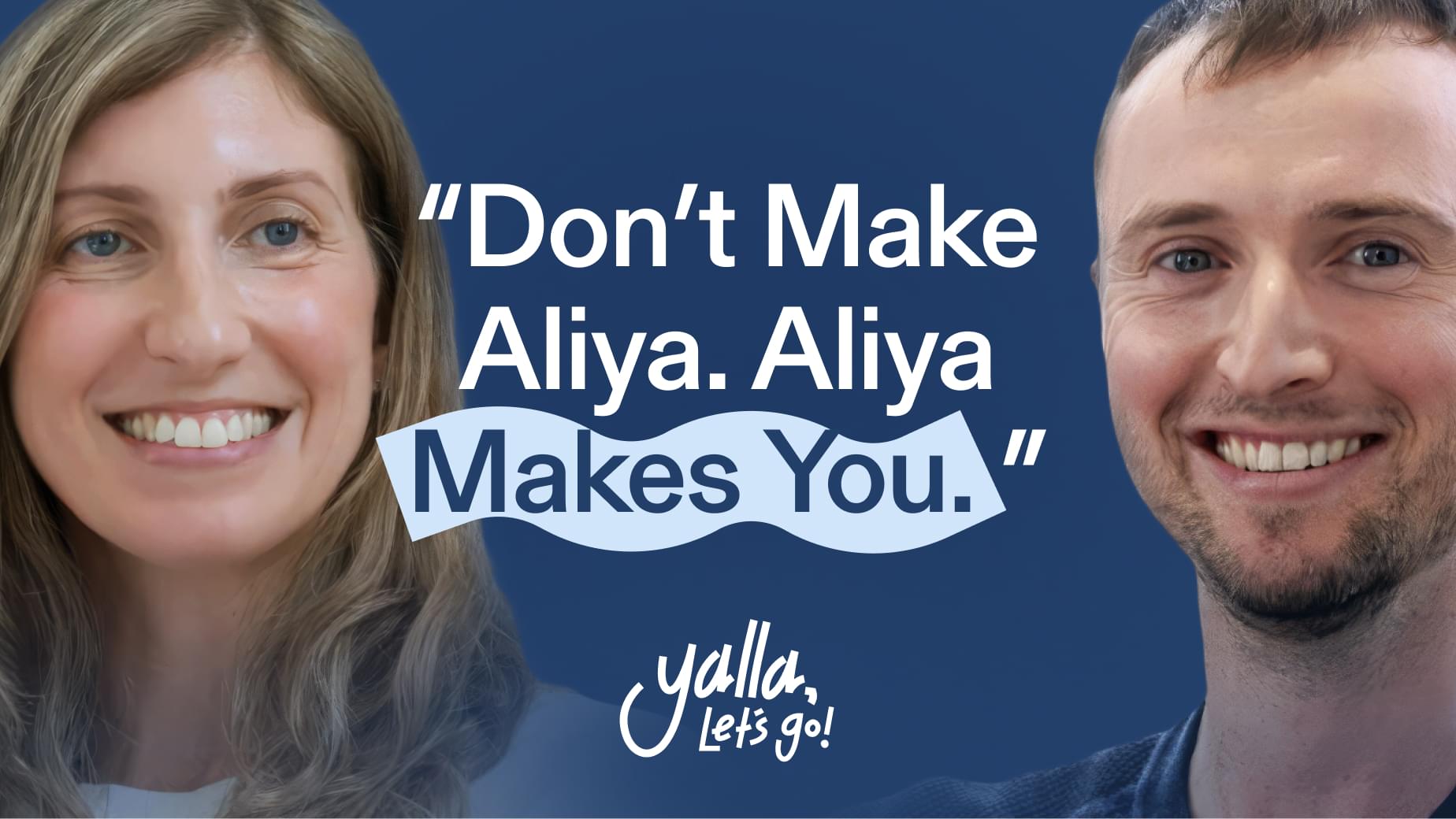Henry Ward



How can values create value? On this podcast, Michael Eisenberg talks with business leaders and venture capitalists to explore the values and purpose behind their businesses, the impact technology can have on humanity, and the humanity behind digitization.
Henry Ward



How can values create value? On this podcast, Michael Eisenberg talks with business leaders and venture capitalists to explore the values and purpose behind their businesses, the impact technology can have on humanity, and the humanity behind digitization.
Henry Ward



How can values create value? On this podcast, Michael Eisenberg talks with business leaders and venture capitalists to explore the values and purpose behind their businesses, the impact technology can have on humanity, and the humanity behind digitization.
Henry Ward
Henry Ward
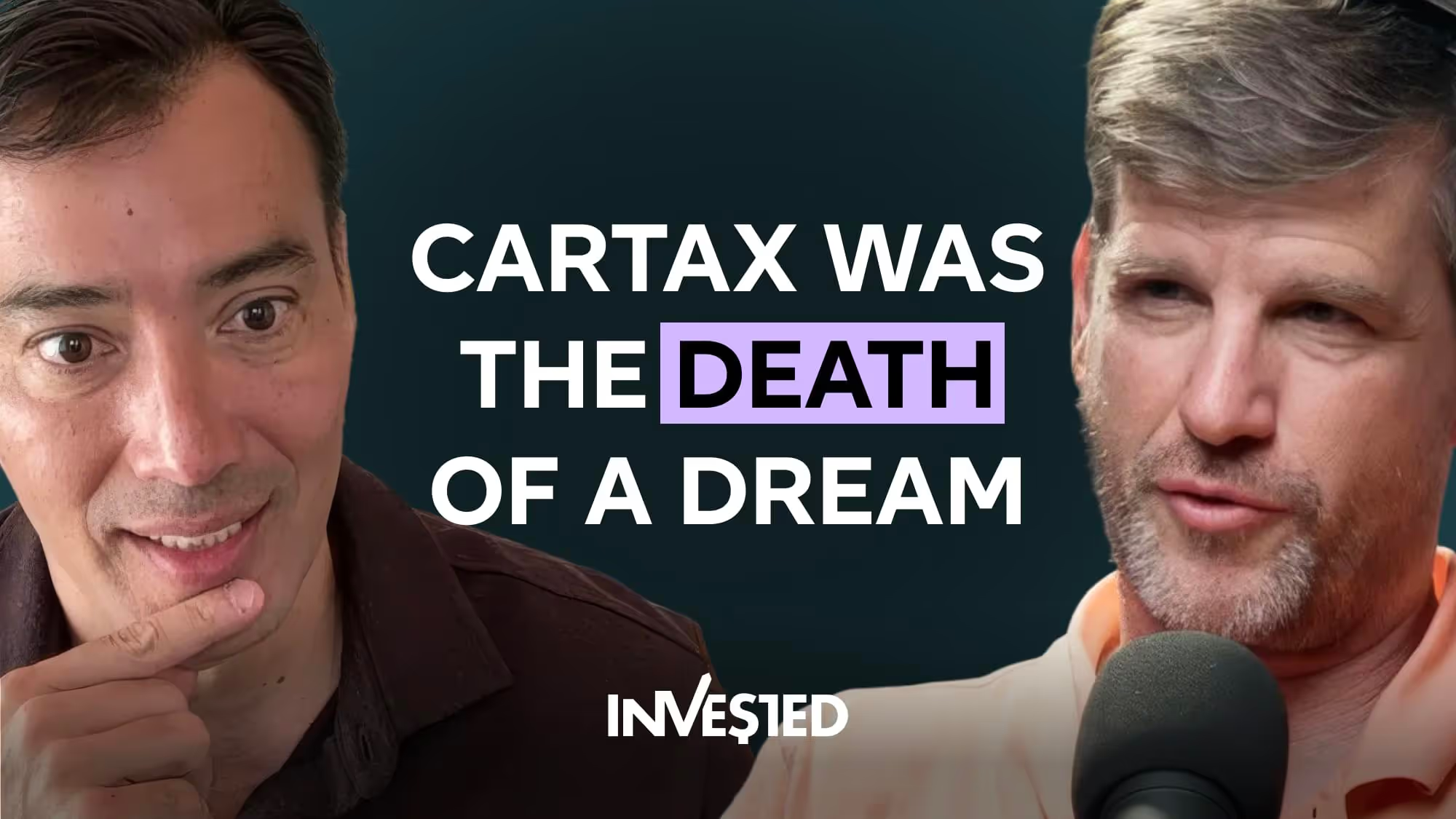
Henry Ward
Henry Ward
00:00 – Intro
01:24 – The Value Proposition of Carta
03:56 – Disrupting Traditional Professional Services
09:18 – How Carta Implements AI
17:16 – The Future of Accounting and Determinism vs. Stochasticism
20:39 – Branding vs. Product Quality in Professional Services
24:46 – Competing, Copycats, and Execution at Scale
27:02 – Core Values: Transparency and EQ
28:48 – Missionaries vs. Mercenaries: Carta’s Hiring Philosophy
31:37 – How to Find Missionaries: Recruiting Strategies
34:55 – Writing, Transparency, and Thought Leadership
36:32 – Clock Speed: Becoming a Fast-Execution Organization
48:03 – Work–Life Integration and Parenting as a CEO
51:01 – Navigating Crises: Trust, Resilience, and the CartaX Shutdown
53:57 – Future Predictions: What Will Shock Us in 20 Years
On this episode of Invested, Michael sits down with Henry Ward, the CEO and co-founder of Carta. Carta is trusted by more than 50,000 companies, over 8,500 investment funds and SPVs, and over 1.6 million equity holders to manage cap tables, compensation, valuations, liquidity, and more. The company has been included on the Forbes World’s Best Cloud Companies, Fast Company’s Most Innovative list, and Inc.’s Fastest-Growing Private Companies. Prior to Carta, Henry was founder and CEO of Secondsight, a portfolio optimization platform for retail investors. He also held leadership positions at software companies including Reddwerks Inc. and BetweenMarkets. Henry graduated from University of Michigan with a BGS in Mathematics and Computer Science and holds a MSC in Market Finance from EDHEC Business School.
Please rate this episode 5 stars wherever you stream your podcasts!
Henry Ward (00:00.024)
There's no probability in accounting. It has to be right or wrong.
The AI believes this journal entry is 80% chance of being correct.
You only care about the brand when you can't tell the difference between the products. So whether it's Heinz ketchup and every other ketchup, or pick your favorite audit firm versus–it's all the same. And so how you win is you just have a 10x better product, and then you don't worry about the brand.
Anybody whose economic model is to be paid hourly is not interested in productivity. There's a lot of IQ out there. There's not as much EQ. And a high EQ person, a high EQ organization is very differentiated.
Just because we're a big company doesn't mean we should act like one. Just keep executing faster and faster.
I can say Carta is an AI company, but what does it really mean to be an AI company?
Michael Eisenberg (00:50.316)
Welcome back to another episode of Invested. I am thrilled to have Henry Ward, founder and CEO of Carta, with me here. Hi, Henry.
Henry Ward:
Hi Michael, great to be here. Thanks for having me.
Michael Eisenberg:
I've been wanting to have this conversation for a while, and we hooked up around one of my previous guests that I had on this. And what's interesting to me is, I'm a user of Carta. It's not a product I ever thought I would use, but I'm a user. So even though I'm already a user, I'd like you to sell to our entire audience why someone should use Carta.
Henry Ward:
You know, we started building it because in 2013, ‘14, the cost of starting a company would start to go to zero, because of open source software and cloud. And so anybody can start a company. And when we looked at what it took to start a company back then, and the fees to go along with it, the most expensive thing that startups were spending money on was legal fees–primarily around managing the cap table, because it's such a manual, high-dollar process for law firms.
And so we started Carta to do cap tables, 409A's, stock option, expense accounting, all of the accounting and legal services work that goes around a cap table. And I think, you know, we dropped the price of a startup spending legal and 49A fees from $50,000 a year to five. And that's still true today. And most people come to Carta, use our cap table software because it's way cheaper than paying lawyers to do it manually.
Michael Eisenberg:
And is this just a cost element, or is there added benefit to using Carta?
Henry Ward:
So one of my favorite lines is from, I think, is Chris Dixon over at A16Z. He goes, everybody wants to build a network software company or network platform, but they always forget the zero to one, the cold start problem. How do you bootstrap into a network? And initially, when customers started coming to us, it was Chris Dixon's line, “Come for the tool, and then stay for the network.” So they came for a better cap table product than law firms and spreadsheets, and a better valuations product than valuation firms. So they came for that tool. But over time, we created this network effect where, now if you come to Carta, you get a better tool.
But more importantly, you get the network of investors that all know Carta. And so when you issue securities to them, they all already have securities on Carta. Employees do. And you become part of the Carta ecosystem, which I would humbly argue is really now the Silicon Valley ecosystem of, where do I track everybody that owns my company? And then the flip side is, as you as a user, an investor, how do I track all the companies I own?
Michael Eisenberg (03:35.054)
I've always appreciated the idea that it would be great to disrupt lawyers and accountants. That holds a lot of appeal to me. I invested in Trullion on that notion of disrupting audit. And in general, I think if you think about the professional service provider world that's been servicing startups, it's under threat now, Carta, AI, and a host of others. How do you think about this kind of challenge and the future of this service provider industry? From your perspective at Carta.
Henry Ward:
You know, we're deep into AI for exactly that reason, Michael. I would say Carta is good at two things. We are good at taking spreadsheet problems and turning them into cloud solutions. We take–anything that people are doing on spreadsheets, we're like, “Hey, I think we can help.” And we put that into the cloud. Cap tables with a spreadsheet problem, valuations as a spreadsheet problem, stock options expensing was a spreadsheet problem, fund accounting is a spreadsheet problem, LP reporting is a spreadsheet problem. We moved all those things into the cloud. The second thing I think we're really good at is taking services industries and turning them into software businesses. So again, cap tables as a service industry, forms and evaluations as a service industry, fund administration as a service industry–and we move those into the cloud and turn them into software businesses.
AI is dramatically accelerating our ability to do that. This new tool of AI is allowing us to do this much faster, much better. I'm not a believer that like law firms are going to go out of business, or all these people are going to lose jobs. I don't believe that's true. But I do think it's going to change how people work. The division of what can be done in software versus what's going to be done by humans, that line is going to move pretty dramatically over the next few years.
Michael Eisenberg (05:30.926)
So take me through, first of all, what is the AI implementation beyond the spreadsheet in the cloud that you've done at Carta? And number two, even though, and I agree with you, by the way, I don't think all lawyers and accountants are going to go away. I think that's hyperbole. But how has it exactly changed the services that lawyers and accountants have provided to startups and others and impacted, let's say their business?
Just as an example, many relationships between startups, and law firms, and accountants get started because they provide kind of cheap services or basically cap table services upfront, and then they kind of make their money on the IPO. But you've disrupted that now. And so I really want to understand at a deeper level that relationship and the impact on the economics, for example, of law firms and accounting firms.
Henry Ward:
I'm a little bit contrarian in this, perhaps. I'm sure many people disagree, and time will tell if I'm right or wrong on this. I don't think a lot of these service firms are going to get disrupted by selling tools to them. So when you think about all the legal startups that are selling software to law firms, I don't think that's going to be disruptive. I don't think that changes things very well. Because all of them are selling on this thesis of productivity. And law firms are just–the economic model for them rejects productivity tools.
That's why I always say law firms and Silicon Valley didn't start using DocuSign until the mid 2010s. And they're going to go from learning DocuSign to AI in one leap? Like, I'm not a strong believer in that. The other thing I'm not a strong believer in is that if, and I speak very specifically about system of record platforms, that many of these AI agents that think they're going to replace system of records, I actually think is misguided as well.
Michael Eisenberg (07:27.554)
People are not going to get productive or rich, get productivity enhancements or rich selling to service provider firms, because they're the last guys in the world to adopt technology.
Henry Ward:
Yeah, but service providers, they're the last people to adopt technology because their economic model, anybody whose economic model is to be paid hourly is not interested in productivity. They'll say they are, 100 percent, but they aren't. The economic model just doesn't support it. The second thing is all of these service firms, there's no capex for them. It's a rent. You know, it's an hourly rate. It's, you make the money and then you keep it.
You have to pay for some overhead, but there's no incentive for these service firms to invest in capex, because they're really just taking money from themselves today and investing in a firm for output productivity, and new economics for future partners. And so there's no incentive for capex. That's why corporations invest in technology, because shareholders outlasts the management teams. But that's not true in these service firms.
And so investing in capex for these service firms doesn't work. It's not a sustainable model. My contrarian perspective, I think what gets disrupted is, what I would argue, is the right type of business to build, which is these full stack businesses, where it's not, I'm selling a tool to a service provider. It's, I'm replacing a service provider with a better service provider. And the service provider is better because they provide software.
And so, for example, for us, cap tables–we're a better service provider for cap tables. We're a better service provider for 409A. We're a better service provider for stock option expense accounting. We are a better service provider for fund administration, but we own the entire stack. We own everything. We own the entire solution. And the reason we're better is because we know how to adopt technology and we're willing to invest in capex to create a better service.
So I don't think law firms are going to get disrupted by buying tools. I think a law firm will get disrupted because a software company decides they're going to build a better law firm.
Michael Eisenberg: (09:26.84)
But your case, again, the business model of these law firms is that they kind of lose money early on, or they say they do, lose money early on to service a startup, but make it up on the IPO. But do I even need a law firm at the beginning? I can just come straight to Carta, get my company docs, get my cap table, get my 409A, and then I pick up the lawyer later whenever I need them.
Henry Ward:
So I think a lot of companies are delaying getting a law firm, especially a partner at a big name law firm, just to get started, because there is so many things that they can do now. Even the law firms publish formation documents. They can come to us for cap tables. There's a lot of providers that will give them NDAs, and contract management services, and all the other things that you need to kind of stitch together a company. I would say many of these startups really, and even with SAFEs, they don't really need a lawyer to do safes. So many of these startups are not actually getting a lawyer until their series A or a price series seed round, where they actually need somebody to do legal docs for the financing.
Michael Eisenberg:
How does that disrupt the law firm's business?
Henry Ward (10:39.726)
I don't think this is new. I think over the last 10 years, the work that partners do becomes increasingly higher level, which is what we want. It used to be 15 years ago, partners would do formations for companies. It's crazy, now no partners from a reputable law firm do formations anymore. And I would say now even associates aren't doing it. And that's what you want, is, you want the people moving further up the value chain to higher level work, whether it's IPO work, it's M&A work, whether it's complex financing work, you want them doing that. And then all the commoditized stuff, you really want tooling and software and lower cost service providers to do.
Michael Eisenberg:
Give me an example of an AI implementation in Carta.
Henry Ward:
We have a bunch. I'll give you kind of a category. So the first one is, no human should be doing data entry anymore. It doesn't make sense. A lot of human work is data entry. It's like, how do I get the data out of the documents? Or I got an email, and I type the stuff in. How do I get the inputs into the software? So that's an example of one, is now machines read most of our documents and nobody needs to, one, enter data, whether it's cap table data, whether it's LP data, whether it's fund accounting data. And two is, nobody has to check data, because now we can, a machine can read the document, make sure we've implemented it correctly and do all the quality checks.
So that's like the easiest one. That's the lowest hanging fruit using AI vision. The second part that's, I think, more interesting, is, we're spending a lot of time with how the user experience and software is going to change. So one of my arguments is we shouldn't be building forms anymore. Forms, web forms have been the dominant way to collect data for 20 years. And it was really built, because you had all this sort of unstructured data in the world, and we had to structure it into a database. There had to be an interface that someone could say, “This number is shares. This number is LP commitment.” And you did that by creating a form that said, “Put this number in as share account, put this number in as LP commitment, put this number in as amount invested.” And that was the translation from the real world into the database. In LLMs now, we don't need to do that anymore. You could type in numbers in any way you want, and the LLM should figure out where it goes in the database. So we have, at Carta, we've got tens of thousands of forms, pages that collect various types of data, whether it's cap tables, accounting, whatever it is. And my argument is, what if we had no more forms? How would we pull in data? And so a lot of this now is just, upload a document, or just free form type in what you want to do, and we'll just create the workflow. We still have all the workflows. Nothing has changed in the machinery underneath. But we now have a different interface. So we don't have 32 pages that you have to click through to get all the data in.
A third one that I think where the world's going is on the agent side. We have a lot of accountants. Almost 2,000 people work at Carta. A third of them are focused on fund accounting and managing all the debits and credits, and the journal entries and all of those things. It is very complex work. You have to deeply understand accounting. But it's programmable.
And so a lot of the agent work we're doing is looking at how accountants process different transactions that are workflows that are happening on a system, and then having agents start to take over, because the reasoning models are so good. So I'll give you a quick example, cash rec, complex problem. We cash rec a quarter million entries from all the bank fees we get every month. We actually have humans that go in and research each transaction and figure out which entry it has to go into. And they have, in their mind, they have a reasoning model. And so now we just train an LLM to give them a reasoning model for the LLM to do it themselves, or the AI agent to do it themselves. And it's been working fantastically. And so I think more and more of that kind of commoditized white-collar work is going to go the way of agents.
Michael Eisenberg:
Are you going to need all those 600 accountants in the future?
Henry Ward:
I will, but much like the law firms, they'll be doing higher value work. There's sort of this thing where people believe, oh, because software now automated the job that I had, I must be out of a job. And our perspective is, no. It allows you to go do more interesting stuff. Because we want your knowledge. You've collected 10 years, 15 years of knowledge that allowed you to do this thing. Now apply that in a new domain, because we've taken out the lowest value work for you.
And it just so happens, you know, people will start to move up the value chain. And it's always been true. When the calculator was invented, it wasn't like all these people that were using abacuses were now out of jobs. It was, they now actually could use the calculator to do physics and put somebody on the moon. Like that was that's the whole point.
Michael Eisenberg:
There was just a report that came out, I can probably pull up on my computer, I think it was from my Penrose, that said that AI or LLMs are really bad at accounting. What do you think?
Henry Ward (15:59.386)
They are. So I would say we're on the cutting edge of figuring out how to use AI in financial applications. And why AI is bad at it is because it's stochastic. So the mental model that changes when you start building AI applications is, as engineers, we believe the world's deterministic. Code is deterministic. If I run it twice, I get the same answer. And when I don't, that is a bug.
Like something is wrong if I run the same program twice and I get different answers. So code is deterministic. By its very nature, LLMs is stochastic. You can run it twice and get different answers. And so what we think a lot about is, when is stochasticism a feature and a bug, and when is determinism a feature or a bug? And then you have to apply them separately.
So one of the examples we use is, anything in accounting can't be stochastic. Like, there is a correct answer in accounting. So when we're using AI to solve accounting problems, we don't actually use the LLM to give us an answer. We use an LLM to write the code to give us an answer, because we need the answer to always be deterministic. That's like an example that I miss, that I think many people miss when they're doing these accounting startups, is they do silly things like the AI believes this journal entry is 80% chance of being correct, or 80% probability. There's no probability in accounting. It has to be right or wrong. But then there are cases where you actually want stochasticism. So one of the examples might be when we're generating a report that a customer wants, instead of giving them one report, we might give them three, all slightly different. And then they can pick the best one. And so you want variation in how you report these numbers.
Another one is when we do QA. So we may have a thousand entries that we're putting in through code. But then you want two LLMs to write different code that puts in the same entries and then check those. We don't believe in human in the loop. We do believe in agent in the loop, where you actually have two different agents writing the same code for the same problem. And because they're different, because they're stochastic. If they come up with the right answer, that answer is more believable. If they write the code that generates the same answer, because it's stochastic, you expect them to be different. It's the same as Amazon Turk, right? How did you know Amazon Turk was correct? You had three people doing the same thing. And if their answers are correct, you believed it. And if two of the people got one answer and a third got something different, you'd have to check it. Same with agents. And that's an example where stochasticism is a feature. And so we spend a lot of time on this deterministic versus stochastic problem. And then accounting always has to be deterministic, but the way we do accounting can be stochastic.
Michael Eisenberg:
I think that's incredibly fascinating, and brings up a question that I hadn't thought of until you started speaking this way, which is, I hire PWC not necessarily to get the right answer, also to get the right answer, but because PWC signs on the document. There's kind of a branding element to it. When I do a 409A, I mean, we'll just be open with each other. A lot of the 409A evaluations are made up, right? And they're kind of solving for an answer that you already know, rather than coming to a real mathematical or accounting conclusion. But because somebody has signed on the 409A, I can use it at a board level in order to kind of support or buttress the valuation that I've come up with anyway at the board level.
So a large part of the value of many of these firms, and that's why there's a Big Four today in accounting, and with brand name legal firms, is to provide the brand name. What you've just described now is stochasticism as a replacement for brand name. Meaning, I've got three proofs, so to speak, that could have come out of another way, and now I'm going to replace it with this kind of 777 in the slot machine of three proofs in a stochastic system. Does it actually work? I mean, it technically works, but the question is if it really works for the customer. And what are the brand names going forward? I guess is the second question.
Henry Ward (20:36):
Yeah, I think it depends on the product. I've never been a huge fan of the brand name stuff. And it's a function of my history. So when I started eShares, now Carta, and we started doing cap table software, people would say to me, it sounds silly, but 100% serious. They would say, “I need a law firm. Pick your favorite law firm's brand name. I need their stamp approval that my cap table is correct.”
Like, who's going to trust some random startup and that the cap table is correct? We need the brand. And it's just a funny way of thinking about the world. If that's always true, nothing changes. Then why does NetSuite, why don't you need a brand for NetSuite? We use software all the time for missing critical stuff. We don't go, “Well, we need PWC. We don't trust NetSuite.” And in fact, I think most people would argue we trust NetSuite way more than we trust service providers these days. And so the same was true of valuations. When we started doing 409A valuations, the CFOs would be like, “I need Bob from valuation firm ABC, because that's the brand we need. And he knows my business.”
Now nobody cares. And I think that will just continue to be true. The reason brands work is because the products are undifferentiated. If the product is differentiated, if the product is really good, if it's 10x better, nobody cares about the brand. You only care about the brand when you can't tell the difference between the products. So whether it's Heinz ketchup and every other ketchup, or pick your favorite audit firm versus the–it's all the same. And so how you win is you just have a 10x better product, and then you don't worry about the brand
Michael Eisenberg (22:31):
Scott Bannister, who I think is one of your early investors, said I should ask you the following question. How are you responding to the flood of Carta copycats? There's Carta for real estate. Therefore, it comes back to the question, the brand matters when it's a commodity business. Obviously, you're being challenged by many, many challengers trying to commoditize your business. So how do you respond to the copycats and differentiate yourself if it's not through the brand called Carta?
Henry Ward
Yeah, well, I think I was very worried about all these copycats for everything. Whether it's crypto, cap tables, just exactly what we're doing, Carta for other asset classes. I was very worried about it because I was like, look, cap tables will become commoditized. I was wrong. It just hasn't. And I'm not 100% sure why, but I think a couple of things. I do think because of network effect, there is a winner or incumbent advantage. Like it is very hard at this point, I think, to build a cap table company that has network effect that could beat Carta. It’s just because there is some incumbency, it's a little bit like Salesforce, is, this is just hard, because we've taken that space.
The other thing I think I've learned is execution matters. You know, everybody says it, nobody believes it. There was like, it's the idea–and it's not. It's the idea plus the execution. And so you can have the same idea, but if you don't out-execute, it's hard to win. And at least so far, I don't think anybody's created a 10x better product than Carta. And to displace an incumbent, you need to be 10x better.
Michael Eisenberg:
How fast are you growing?
Henry Ward:
We're about 20% grower, at about $500 million in ARR.
Michael Eisenberg:
Are you going to IPO yourself on Carta?
Henry Ward:
Not ourselves, because we only do private companies. We don't do public anymore. We stopped doing public and decided to be private market specialists. But the original vision, Michael, was that we would IPO on ourselves. Today, we're not. We're only working in private markets, including private equity and private credit. That's where we spend most of our time now.
Michael Eisenberg:
Amazing. So I want to change gears for a second, because the podcast Invested is about how values create value. So I wanted to ask you, what are your core personal values and what drives you?
Henry Ward:
You know, I think the number one thing that I think everybody would say about me is I'm transparent to a fault. You know, I always err on the side of transparency. It gets me in trouble a lot, especially in the news and media. But I still kind of stand by the values of being transparent to a fault. You know, from everything from like, when we entered the 409A business, we didn't try to hide it. We told the world, we wrote a blog post that we're entering 409A, and this is what we're doing. And everybody told us not to write our strategy, because then everybody knows our strategy. And we're like, everybody should know our strategy, so they can decide what they want to do with it. You know, whether it's a 409A firms want to compete or stay away, whether people want to come join us and help, you know, it's just like–be out there.
So in transparency, if you look at our company, we do town halls every Friday. We do show and tells every Wednesday for the whole company. We're transparent to a fault. I think the other one is a big believer in EQ. There's a lot of IQ out there. There's not as much EQ. And a high EQ person, a high EQ organization is very differentiated.
I think it's actually hard. We never fail as a company because we're not smart enough. Like it just doesn't happen. We're not, we never are like, we can’t solve this problem, we're just not high IQ enough. Everything that goes wrong at a company like ours is because people don't get along. It's that people aren't aligned. People make mistakes. People don't work together well. It's always EQ problems. And so I spend a lot of time personally thinking about EQ, but also trying to teach it in the organization.
Michael Eisenberg:
One of the things I think you wrote somewhere is like you hire only missionaries. I guess the word missionary carries a lot of different meanings, or it can bear a lot of different meanings. I don't often think about missionaries as having the highest EQ necessarily, although some religious missionaries have probably high EQ, because they're recruiting or proselytizing for the faith. But oftentimes the way we think of these missionaries is this missionary zeal, you know, is knock down the doors and not the highest EQ. How do those jive with each other?
Henry Ward (27:38.764)
Yeah, I think missionary to me is more about why they're there. The why versus the how. So the why is–asymptotically, you know, Hewlett Packard, the 137,624th employee goes to Hewlett Packard because they need a job. And asymptotically, that's true. And that will be true of us. But we're trying to hold that off as long as possible, and hire as many missionaries as we can in the world until we run out of them.
And they come because they really care about the vision. And why I think that's important is one, they're there for the long run, loyalty, all the kind of normal stuff you'd like to see in employees. But I think what's most important is, they get what we're trying to do. The problem, almost always the problem that you have in running large organizations is this local versus global optimization problem, where a team can optimize locally for what they're trying to do, but it's a local optimization for the organization. It's not the global optimization. But it's global for them. And that balance of incentive structures of what's the right thing to do for the company versus what's the right thing to do for the team is one of the biggest challenges, the chronic challenges of running a big organization. And so if you have mercenaries that are there for a job, a paycheck, a promotion, a title, they're much more inclined to solve the local optimization problem for themselves.
Missionaries, you can have a much broader conversation with. “Hey, I know that's better for your career, but doing the other thing is actually better for the company.” And it's much easier. To your point about the EQ side, I think that's a how. And so there is the missionaries, like sometimes you do have to have sharp elbows and you're like, “Look, I'm going to go against what everybody wants, because it's the right thing for the company. But hopefully you have savvy missionaries that are like, I'm not going to–I do think this is right for the company. But instead of just charging forward and upsetting people, I am going to get people to believe it too.” And that's a great missionary, right? A great missionary is not someone that just goes out and does missionary work. A great missionary is someone that creates more missionaries. And that's what you want in the organization.
Michael Eisenberg (29:53.262)
I think, kind of, everybody wants to hire missionaries. I think the question is how you find these people on a consistent basis. So what are your tactics, approaches, strategies for finding missionaries and picking them out?
Henry Ward:
It's pretty simple for us. So one is, back to my transparency as a fault, like super transparent about what we're doing, and put it out there. And people actually come to us. I mean, most of the people that apply, they're not applying for a job. They're like, “Hey, I love the idea of creating more owners. I want to be a part of it. I want to be part of a company that does that.” Or, “I came from the fund accounting industry, and I realized how broken it is. And I've seen your writing, and I want to be part of this vision to fix it.”
So you put it out there. The second is, we don't really sell candidates on coming to Carta. Michael, if you were considering coming to Carta, I would tell you what we're doing. I'd tell you why we think we're good. But most of my time would be unselling. It would be like, “Hey, it's chaos in here. It is a grind. It is a constant battle.” I tell you all the horrible things, all the words on it. And if you're still interested, that's great. That's fantastic.
Michael Eisenberg:
You mentioned before that people kind of find you by your writing. You write, and you're out there. Why is that important? And when did you figure out that that was important?
Henry Ward (31:25.496)
You know, I started early. I started when the only bloggers were, kind of, VCs. No founders were writing. And I learned so much from reading Paul Graham and other writers about what was happening that I wanted to pay it forward. And so I started writing just about the founder experience, like things like how to hire, and management FAQs, you know, things that I was telling my company that I thought might be helpful to other founders starting their companies.
And I started writing, and I got a lot of traction through that. Even when we did the layoffs in 2019, you know, we were the first to write publicly about the layoffs. Everybody was hiding them. And I thought they were doing a terrible job of communicating layoffs, doing layoffs, all those things. And so I published my letter to employees about how we were doing the layoff. And then, you know, that became the new norm for how to do layoffs is to do it transparently and openly.
Michael Eisenberg:
It was epic.
Henry Ward:
Yeah, yeah, thank you. Yeah, it was important. And we did three months severance, which then became the standard during Covid, which was the right thing to do. Before that, a lot of companies would give like two weeks, and we were entering a pandemic. So we did a lot of writing. And I think it was just good for the ecosystem. And then it also was great for recruiting, because people found us and they were like, this is the kind of company I wanna work for.
Michael Eisenberg:
You have spoken a lot about clock speed. What is that?
Henry Ward:
You know, it's a speed that we get things done. And what happens in a company as you get bigger is, there's more process, there's more bureaucracy, there's no more planning, and there's less doing. You know, there's one of my favorite clips from Steve Jobs, who's my hero, my idol about running a company. And he talks about content versus process. And as a company gets bigger, executives start to believe that their job is process. The process of managing the company versus the content of creating a company. And I see it in our company, and my daily reminder to my team, to my executives, to the managers, to all the teams is, just because we're a big company doesn't mean we should act like one. Just keep executing faster and faster.
And I think that's only more true. With AI, the tooling that's happening, software advances, like–speed is going to decide, speed of shipping a new product is going to decide the winners from the losers. And that is the one advantage startups have over incumbents. We have the money, we have the people, we have the resources, we have the momentum. The reason we get disrupted is so startups can move faster than we can. And that's what we should stay awake every night worrying about.
Michael Eisenberg (34:23.085)
And how do you practically accelerate clock speed in your organization of 2,000 people at $500 million? And what would you tell other entrepreneurs to do to accelerate the clock speed?
Henry Ward:
Yeah, so I'm a big fan of going straight to the team that's working on stuff. I just did this a few weeks ago. We had a team that was working on something, and they said it would take, I think it was like two months or something. And I said, “That seems like a lot. Can you come show me why it takes two months? Just show me the work, show me the problem. Help me understand it.”
Crazily, I think it was actually three months, that's what it was, three months. And then crazily, you know, and before they even showed me, they're like, “You know, Henry, we looked at the problem again, and it won't take three months, it'll take six weeks.” And I was like, “That's amazing! Progress already, just by asking the question.” And then I said, “But you know, I still would love to see what takes six weeks. Just educate me on it.” And then we went in and I looked at the feature, I looked at the code, and very quickly we figured out, hey, we could actually do this in about two weeks.
And it's just caring about it. It's like anything in a company. If the CEO cares about it, the company cares about it. The CEO doesn't care about it, the company doesn't. And so I just have to care about it. And every time I see us not executing to our values of high clock speed, I just ask the question. And it's just, it's every day. You know, it's nothing fancy. It's just work.
Michael Eisenberg:
How do you review people on their clock speed?
Henry Ward (36:01.07)
It's a great question. I don't have a great formalization of it. But I think it's one of these things where you know it when you see it. You recognize teams that are doing it. And then you acknowledge the teams that are doing it. And then what happens is, if you give praise and acknowledgement to teams that are executing the way that you want them to execute publicly, other teams start to emulate.
So one of the things, customer experience, I’m a huge believer in it. I am embarrassed when I get escalations that we didn't serve a customer well. Like, personally, I hate it when a customer is unhappy with what we've done for them. And so how do I get other people to care and be a part of that embarrassment, is not to shun them when bad things happen, but when we do get positive praise, every time I see positive praise from our customers, I post it publicly in my Slack channel, and I call out the team who did it. And when everybody starts to see that's what I care about, everybody converges to that thing.
Michael Eisenberg:
That's a great point. Have you pushed clock speed using AI? Meaning, “Hey, I expect every team to kind of double down on AI here, whether it's, you know, AI coding, or something else,” and say, “Okay, I expect a 20% improvement in clock speed because of this.”
Henry Ward (37:58.872)
Yeah, I didn't put out a number, but I said, “Carta’s an AI company. And one, there's this interesting question, I can say Carta’s an AI company, but what does it really mean to be an AI company?” And I offer two definitions. So one is, you're an AI company if you build products that deliver an AI experience to customers. So if we're using AI, we're building software that uses AI for customers that they use–we’re an AI company. The other is, you don't build AI-based products. You build traditional, conventional products, but you use AI internally to build the company. So you're rebuilding the company on an AI stack. Carta is both of those. We ship AI products, and we rebuild internally with AI.
And so what I tell all the teams is, they should be using AI, experimenting with AI in everything they do. And now it's all experimentation. We're in learning. It's early days of AI. But now I consider myself the AI person at Carta. So I work with teams. I'm like, “Hey, let me work with you on–hey, you're trying to automate a workflow process? Let me help.” And I'm becoming the AI consultant to try to teach teams on how to use AI internally. And in fact, we're doing next week a hackathon for the whole company, not just the engineering group. The entire company is doing an AI hackathon where they're building AI tools internally for everything, for anything they want to try. And then that's just how we get better and how we learn.
Michael Eisenberg:
You gave one example before about the coding. What are other examples of where you're using AI to speed up, create faster clock speed?
Henry Ward:
We're doing this hackathon next week. One of the rules for the hackathon is no chat prompts. So I believe that the prompt is the wrong way to interact with an LLM. It's the version 0.1 of the UX of an LLM. So they have to do everything. Every AI use case has to be directly embedded in workflows. It's not just type into a prompt. You have to embed it in a workflow. So then the question becomes, well, how do you do that?
And so we got a n8n license for the whole company, where they can now build workflows on top of n8n for internal use. That's different from product. We don't use n8n for product. We build raw code, and embed LLMs and AI into the raw product. But internally, you don't want finance people building raw code that's LLM. So they're using n8n. And they're taking any workflow that is repeatable. If a human has to do the same thing more than once, it's an opportunity for an AI-based workflow.
And we're starting to go through and map all the workflows in the organization, and load them into n8n. It's important to note, I'm not a believer that that means we fire people. That's not the goal here. It's to free them up to do higher value work. The whole concept of AI will get people fired is really the zero-sum problem, which is, there's a finite amount of opportunity, and if you find a more productive way to create that finite amount of opportunity, then obviously people have to lose their jobs. And it's the mistake humans have made since wealth of nations. The world actually is actually a positive sum. And so our view is, AI just allows us to be more positive sum rather than zero sum.
Michael Eisenberg:
Is there a team that you have that gets after these AI opportunities or is it just you?
Henry Ward:
I have a couple of teams working on different, a few teams, I should say, working on different AI projects. But I meet with them every week.
Michael Eisenberg (41:23.022)
You’re the AI czar.
Henry Ward:
Yeah, that's right. Including approving, like everybody now wants to buy AI tools. You know, all these different AI tools that are coming up. And there's a lot of snake oil, Michael. There's a lot of AI tools that aren't very useful, aren't very good. And so even on procurement, I'm a procurement person for all AI, because I want to see what other–every time a team wants to buy an AI product, they have to send it to me with a video so I can watch what the tool does. And I'll decide if I think it's useful for us and worth it. But more importantly, I get to see what
every startup is doing on AI. And that's where I learned the most. I mean, these are the most creative people, the founders building this stuff. There's a lot of snake oil. There's some really good ideas. And then when we see the good ideas, we're like, “Oh, we should be that smart, too.”
Michael Eisenberg:
What's the most valuable AI tool that you use?
Henry Ward:
You know, personally, I'm using ChatGPT mostly for personal use, not professional work, you know, like helping out my son with stuff, things like that. So I find it useful, I think the way most people do. Where I find it most powerful at work is embedding it into the existing workflows of our customers. And that's where I, again, I might be a bit contrarian on this. A lot of people think that AI is going to disrupt traditional industries. You know, there will be an AI that beats Salesforce, an AI startup that takes out Workday, an AI startup that takes out Carta. And I just don't think that's true, because the difference between being an AI tool and being a system of record is the AI tool can't change the system of record without the system of record.
And so because we're the system of record, whether it's Salesforce, Workday or Carta, if we embed AI, we're not read only. We are write. And so the most powerful use cases of AI for us is not, “Hey, we figured something out for the user,” but we can act on behalf of the user. Traditional, and like just AI agents can't do that. And that's where I think many of these AI to replace Carta, AI to replace Salesforce are gonna die, because we're not dumb either. We may not be as fast moving, but once we figure it out, our AI tools will be way more powerful than anybody else's.
Michael Eisenberg:
I think that's profound. It's an advantage incumbent in many of these cases, particularly to the point you made when you have to write to the system. I think that's a profound point. You just mentioned your son. I think I've seen or read that you're a dedicated father. What are your thoughts on work-life balance? I'll state my priors by the way, I'm on the record of saying, I don't believe in work-life balance, and I have eight children. So, what are your thoughts on work-life balance? What's your approach?
Henry Ward:
Yeah, I'm not a huge believer in that as well. I mean, if it works, if it's a good framework for people, you know, I'm supportive. For me, it's about integration. As a founder, CEO, there is no separation between my personal life and professional life. It's just, it's always embedded. And so I don't spend time thinking about how do I put boundaries between them. I spend time thinking about how do I how do I merge them in fun and interesting and healthy ways.
So for example, I bring my son on trips a lot. He's 11. You know, he's been to our Singapore office, our Abu Dhabi office, you know, our London office, New York office. He's been everywhere. You know, employees know him and see him around. So I bring him there. We're actually going to run an experiment in sixth grade for homeschooling, because that allows him to have more flexibility. You know, the problem with schools is family has to build their schedule around the school schedule. But if you're homeschool, you can build the school schedule around the family schedule. And so we're going to experiment with that. We spend a lot of time together where he'll accompany me. I'll work. I'll go to his things. But I can work remotely. So for me, it's not about balancing the two. It's about how do I merge them in healthy, fun ways.
Michael Eisenberg:
Tell me, what's your strategy on remote versus IRL in real life for the company?
Henry Ward:
I'm a huge fan of in the office. We're in the office three days a week, Tuesday, Wednesday, Thursday, the whole company's in.
Michael Eisenberg:
Four-day weekend?
Henry Ward:
Yeah, exactly. We may go to Monday, Monday through Thursday. We work from home today on Mondays and Fridays. You know, it's always this balance of flexibility versus getting people in the office. A lot of people say they're more productive at home. You know, I never argue the case.
What I always tell them is I say, “Look, you may be more productive at home. I won't argue, but I know you'll care more about work if you come into the office. You're less likely to quit. You'll be more passionate about what you do. It will be a bigger part of your life. If you're not in the office, then you're interacting with an entire company through a monitor.” And that's just true. Like we have the data on it. You know, if you're a remote worker, you're way more likely to quit. You're way more likely to get fired. Like you're just less engaged. It's just true. It's not 100 percent, but on average, that's true. And for us as a company, I think people really embraced it. Like we love coming into the office, and I'm a big fan of it too.
Michael Eisenberg:
Your secondary market shut down in 2024. It was a reasonably public challenge and blow, I think. How did you kind of maintain trust after that and how'd you bounce back?
Henry Ward:
You know, it wasn't even shutting down CardaX. It was the death of the dream for me. You know, I spent a decade working on this private market liquidity problem. I never wanted to start a cap table business. I started a cap table business to give me the option, the call option to build a liquidity business. That was, if you look at my seed deck, it was, “Hey, we're starting with cap tables, so that we can build the settlement engine, settlement database for a private stock exchange. But my dream is to build a private stock exchange.” And I spent a decade working on it. And people know CartaX most famously, but I had two versions before that that I shut down and rebooted. CartaX was the third incarnation of my idea to do it.
So for me, it was the death of a dream. That was my, a decade of my life was devoted to that. I am so lucky that we had a cap table business that worked, a fund admin business that worked, a PE business that worked, that even as we were kind of spinning our plate working on this CartaX idea, we were doing all this other stuff. And when liquidity didn't work, all these other things did work. You know, most people, when their idea doesn't work, they've lost 10 years of their life and they start over.
And I still had this incredible company that I could build around other businesses. So, you know, I've come to peace with either it's an intractable problem, nobody will solve the liquidity problem, or I'm the wrong entrepreneur to do it. And there will be a better one that comes along, hopefully soonת that solves it. And then I feel so lucky that I have a half-billion-dollar-a-year business that's growing that I get to keep working on.
Michael Eisenberg:
You think someone will solve it like, will NASDAQ solve it? Will one of the PE firms solve it? ד some startup solve it? Or it's just like forever an intractable problem, and people should actually just go public, suck it up and go public.
Henry Ward:
Yeah, I don't think anybody will solve it. I think it's an unsolvable problem. At least in the current market structure. And it's just because liquidity and price discovery are not features in private markets. And so any attempt to create a marketplace requires liquidity and price discovery. And the market structure and economics will reject it. And so I think it's an intractable problem.
Michael Eisenberg:
When I interviewed Katie Stanton, which is how we decided to have you on this show here, which was just like a Eureka! Oh yeah, we should have Henry. You told me to ask her, what do you think is obvious today, but in 10 to 20 years, people will be shocked we did this? I want to pose the same question to you.
Henry Ward (50:11.918)
So many–everything from, I do this all the time. Today, self-driving cars are kind of weird. You're like, you know, can we trust them? You know, are they going to crash? Are they going to take over in 10, 20 years? It's going to be the opposite. We're like, can you believe we let 16-year-olds drive? I guess that's crazy.
I think there's so many. AI is going to take all the jobs in 10 or 20 years. They're like, how did we we survive without AI? Like, it's crazy. You know, we're going to look at it like, Google Maps, Like, I mean, you and I, Michael, are probably old enough to remember what it was like to be lost, you know. You know, and nobody will ever experience being lost again in humanity.
You know, in my own business, I see it all the time in fund administration. 10, 20 years, people will be like, “Can you believe we used to run multi-billion dollar firms on spreadsheets and reported to LPs 45 days after the quarter closed? Where they're on Bloomberg watching real-time data, can you believe that was acceptable?” So there are just so many of these I could give you. This location that's happening in software is so remarkable now. There's a million of them. I can't even count how many of these weird things are gonna happen.
Michael Eisenberg (51:48.204)
I think that's actually a perfect place to finish up. Henry Ward, Founder and CEO of Carta. Thank you so much. I'm certain everybody listens and goes, “that's the guy's business my company runs on. This guy's running my cap table.” So I think people will be so excited to hear this. And so just a message to all of you, if you enjoyed the conversation with Henry and the other conversations, rate us five stars on Apple Podcasts and Spotify, and subscribe to the YouTube channel so you can hear more great content from Invested. Thank you, Henry.
Henry Ward:
Thank you, Michael. Thanks for having me. It was great.
Follow Henry on LinkedIn
Follow Henry on X
Subscribe to Invested
Learn more about Aleph
Subscribe to our YouTube channel
Follow Michael on Twitter
Follow Michael on LinkedIn
Follow Aleph on Twitter
Follow Aleph on LinkedIn
Follow Aleph on Instagram
Executive Producer: Erica Marom
Producer: Myron Shneider, Sofi Levak
Video and Editing: Ron Baranov
Music and Creative Direction: Uri Ar
Content and Editorial: Kira Goldring
Design: Rony Karadi
Follow Henry on LinkedIn
Follow Henry on X
Subscribe to Invested
Learn more about Aleph
Subscribe to our YouTube channel
Follow Michael on Twitter
Follow Michael on LinkedIn
Follow Aleph on Twitter
Follow Aleph on LinkedIn
Follow Aleph on Instagram
Executive Producer: Erica Marom
Producer: Myron Shneider, Sofi Levak
Video and Editing: Ron Baranov
Music and Creative Direction: Uri Ar
Content and Editorial: Kira Goldring
Design: Rony Karadi
Follow Henry on LinkedIn
Follow Henry on X
Subscribe to Invested
Learn more about Aleph
Subscribe to our YouTube channel
Follow Michael on Twitter
Follow Michael on LinkedIn
Follow Aleph on Twitter
Follow Aleph on LinkedIn
Follow Aleph on Instagram
Executive Producer: Erica Marom
Producer: Myron Shneider, Sofi Levak
Video and Editing: Ron Baranov
Music and Creative Direction: Uri Ar
Content and Editorial: Kira Goldring
Design: Rony Karadi

